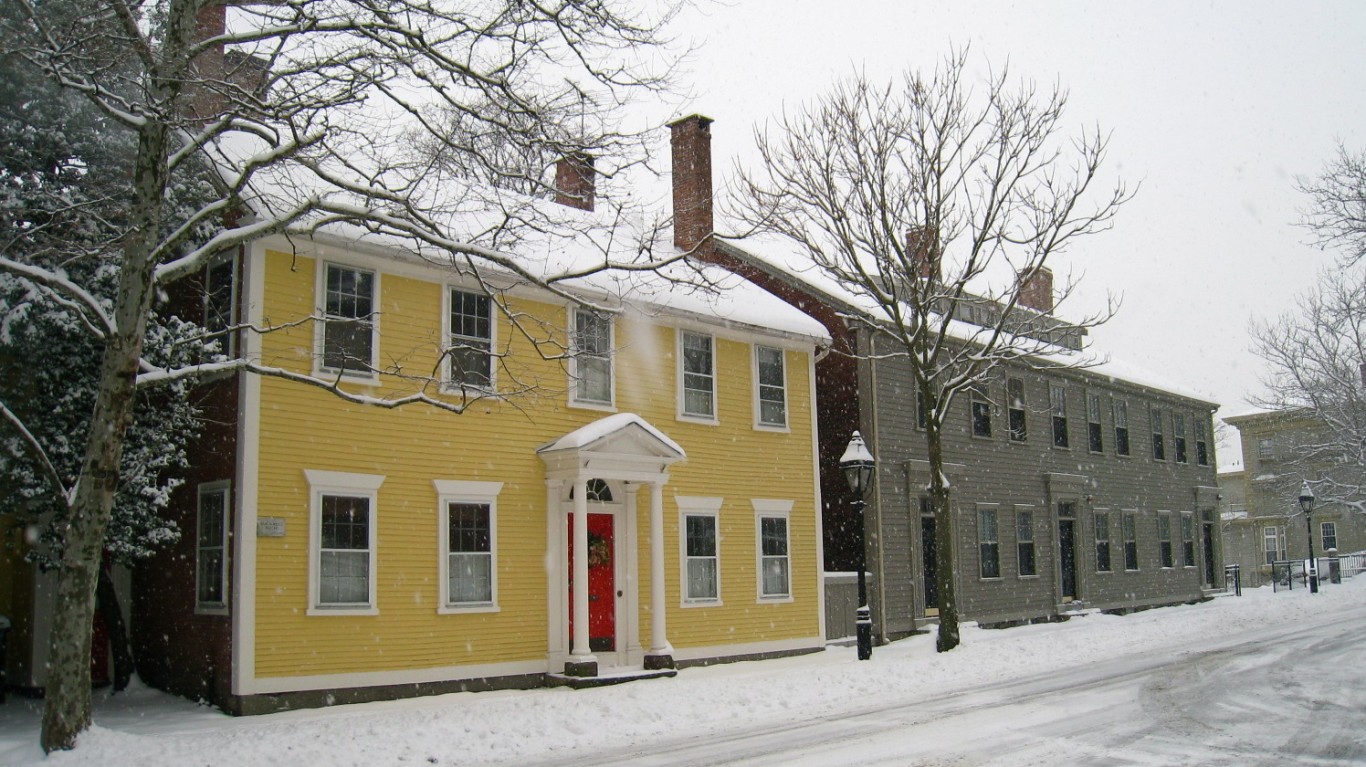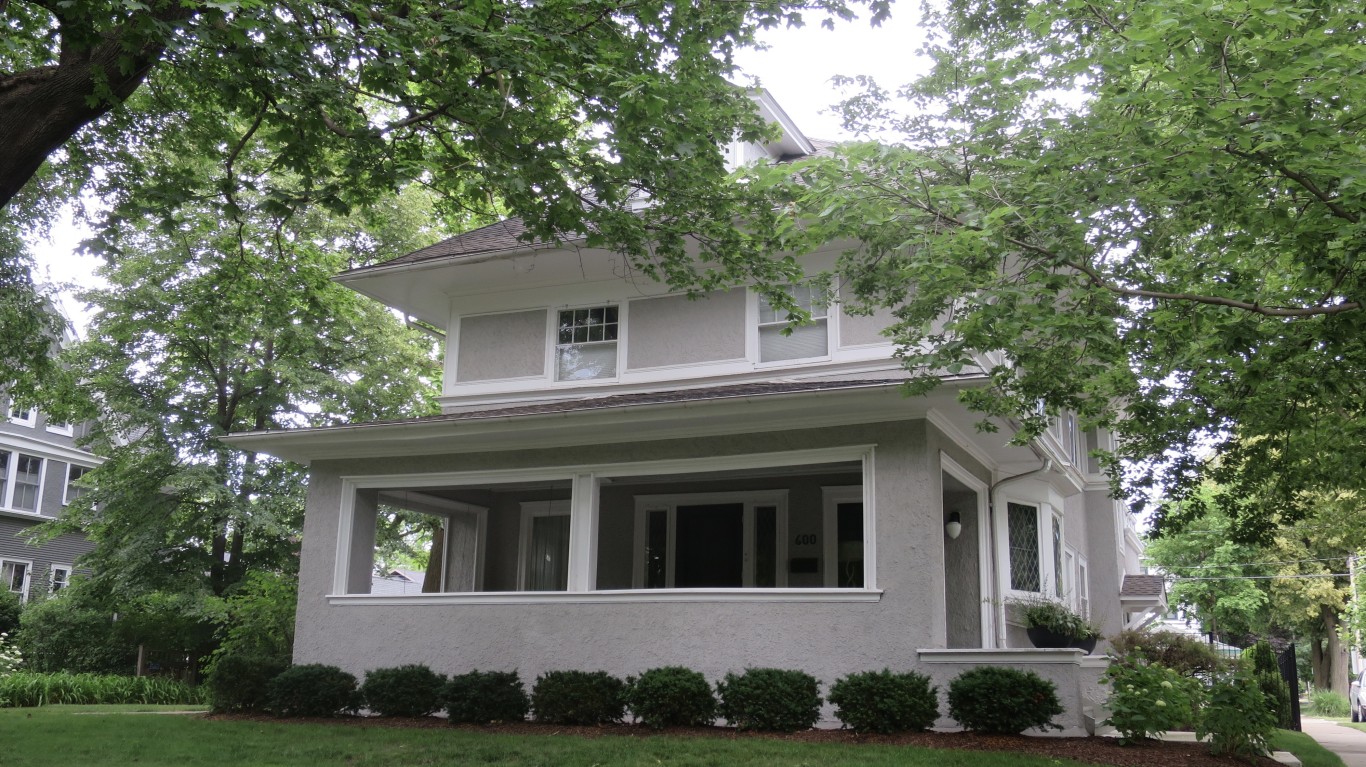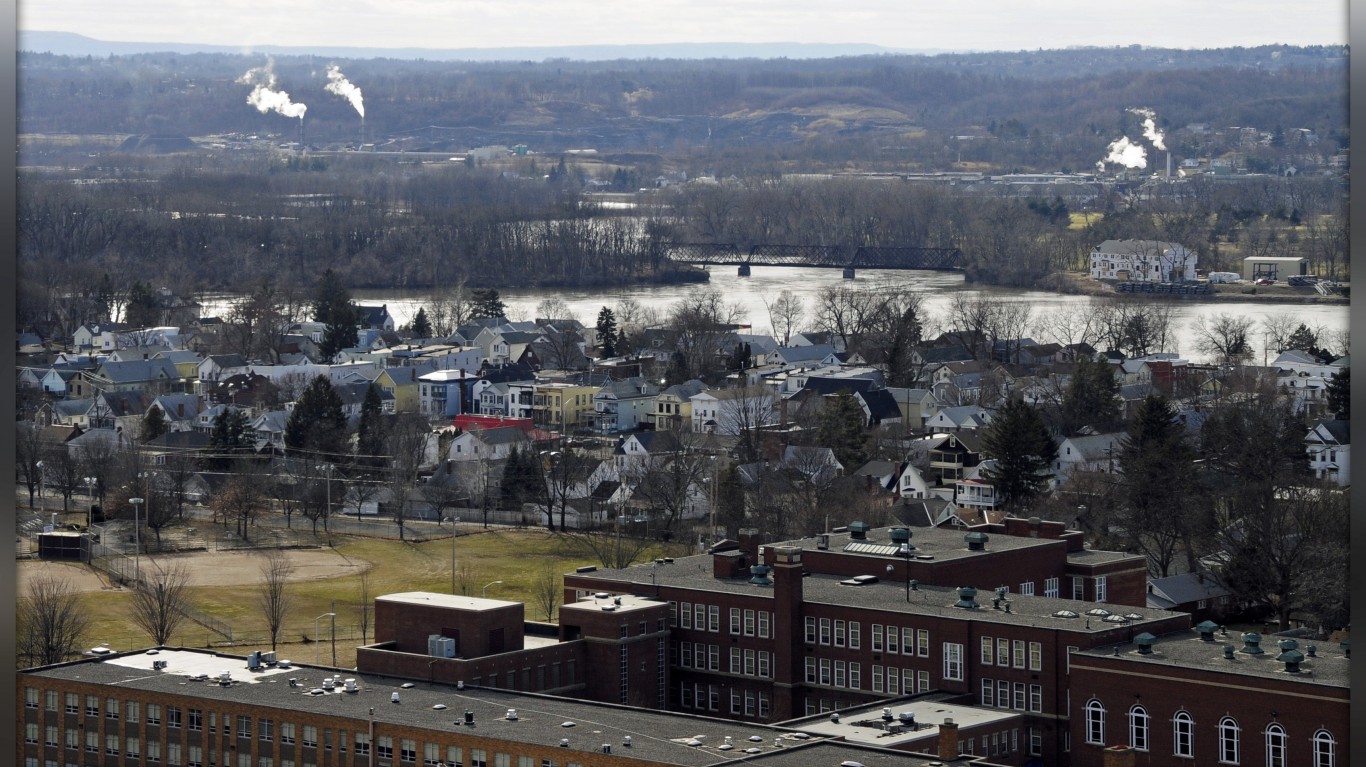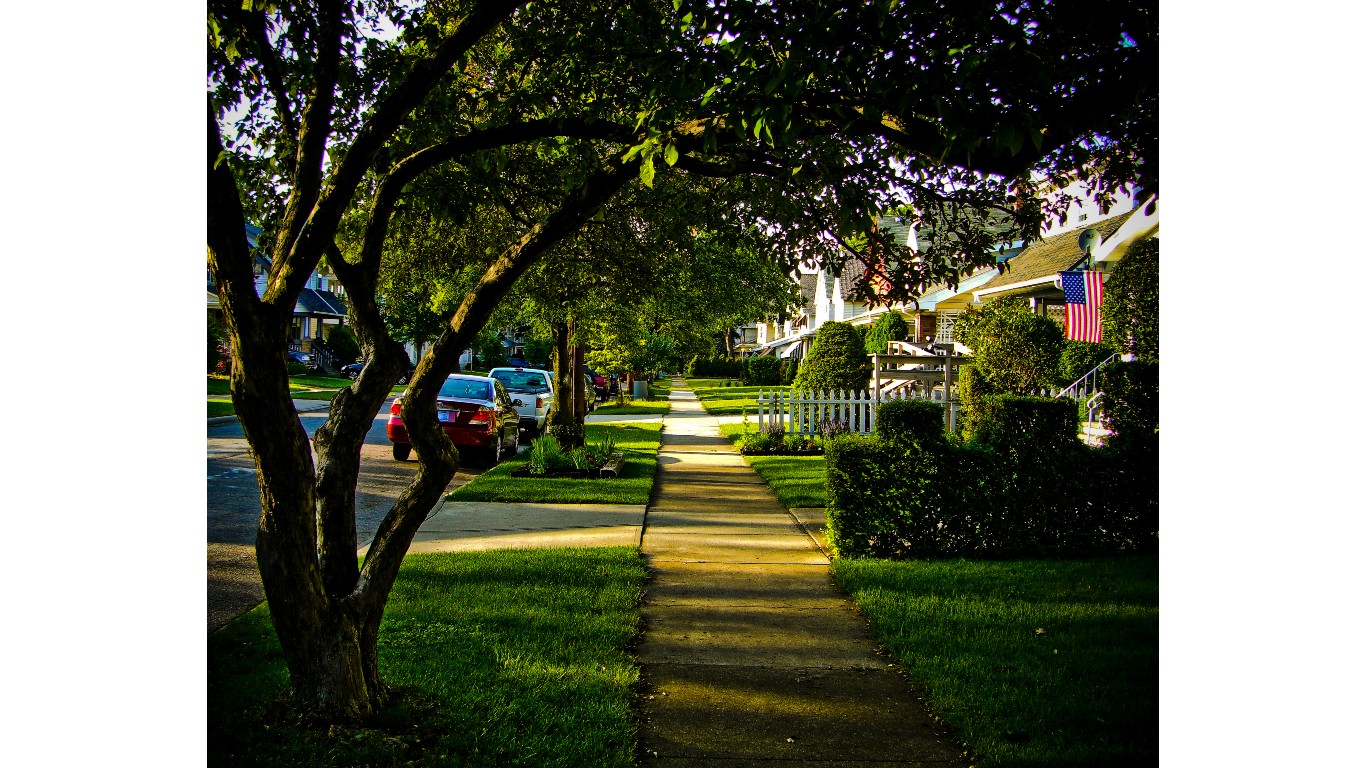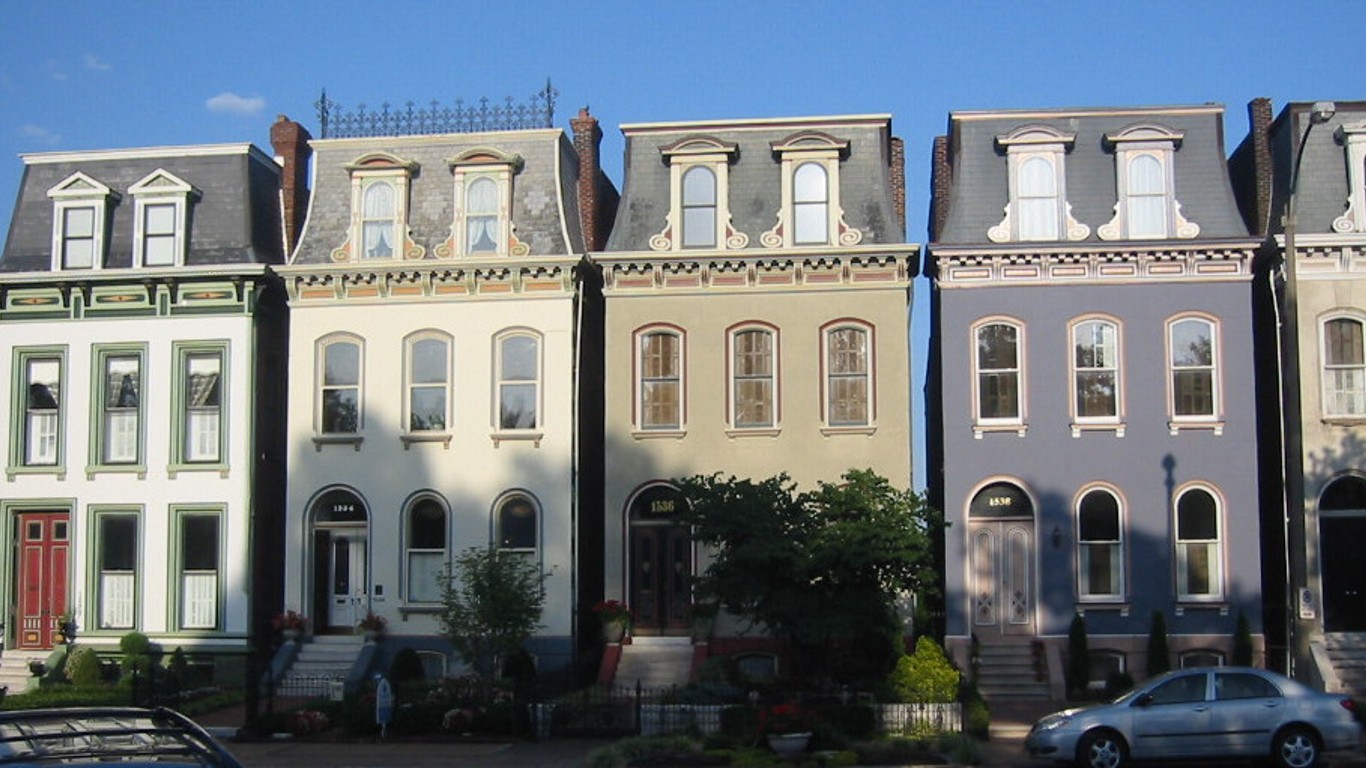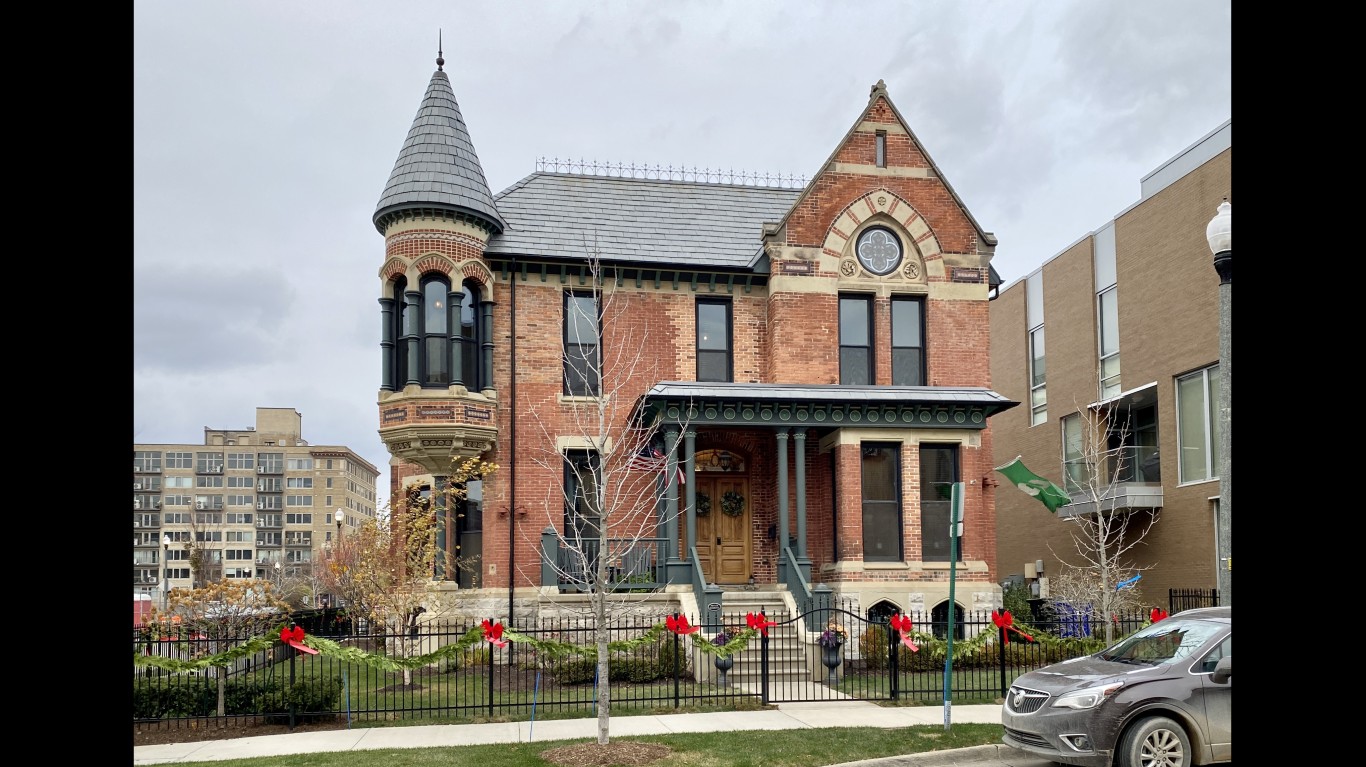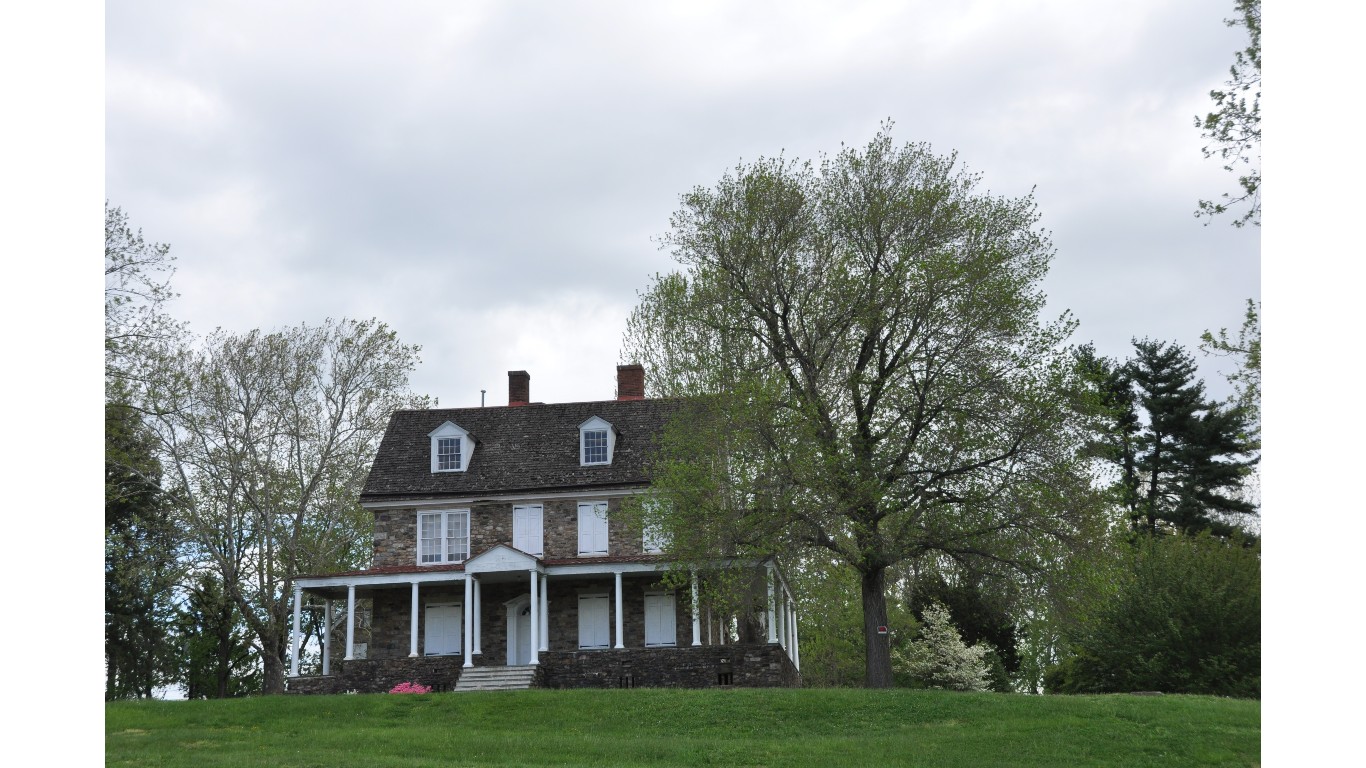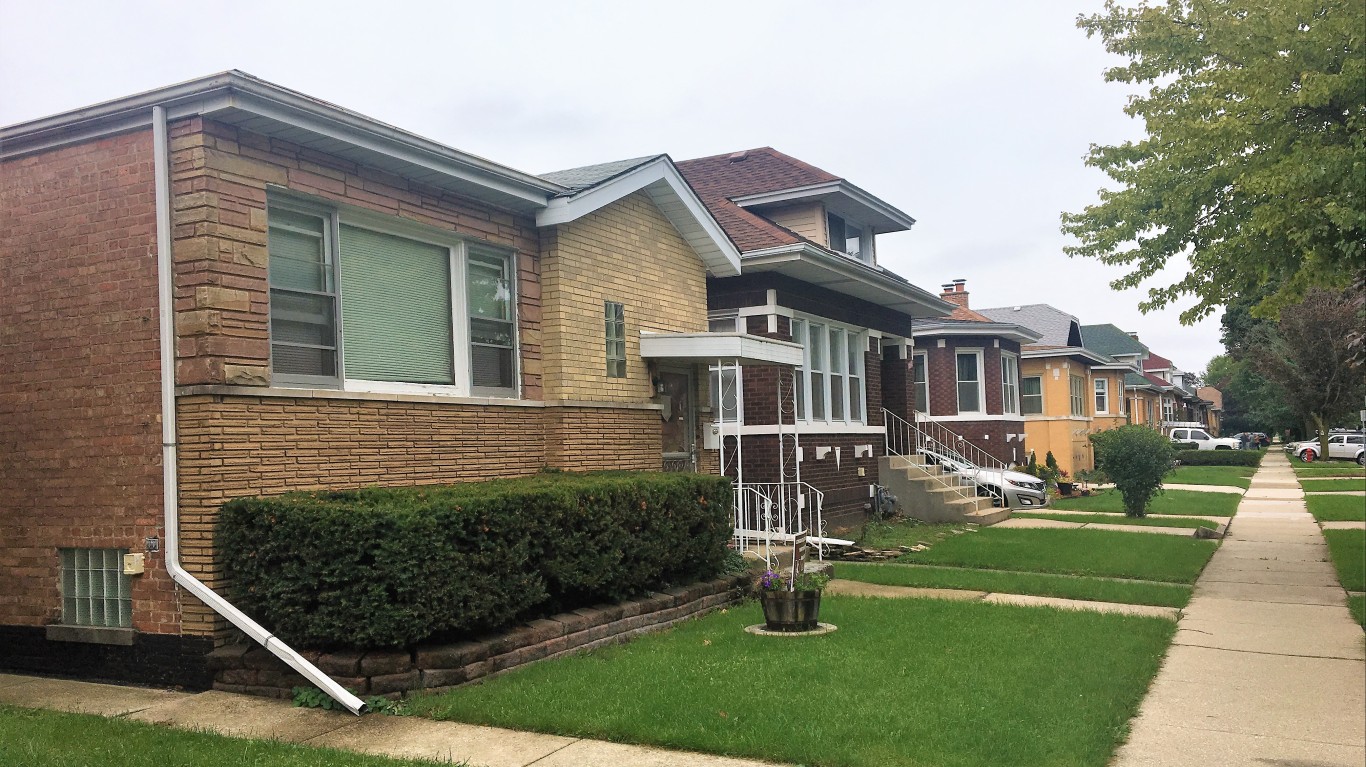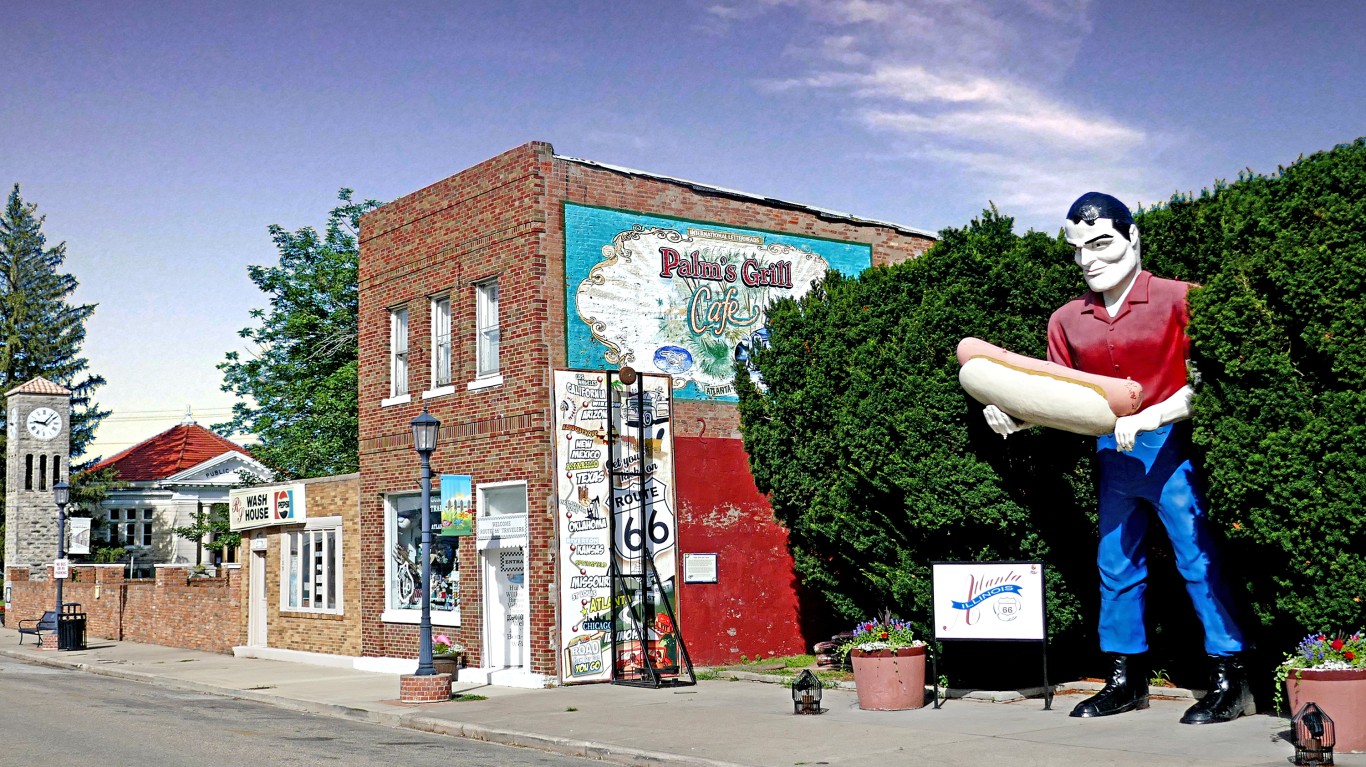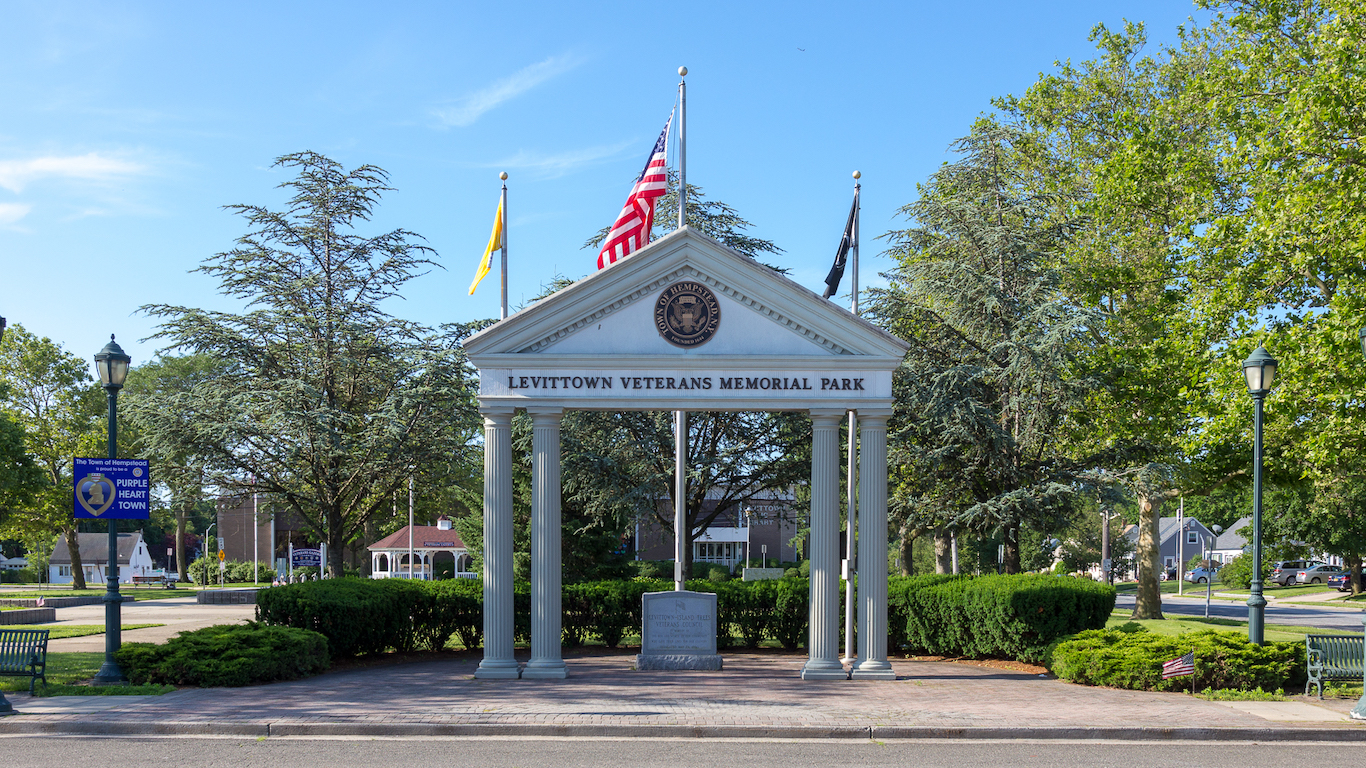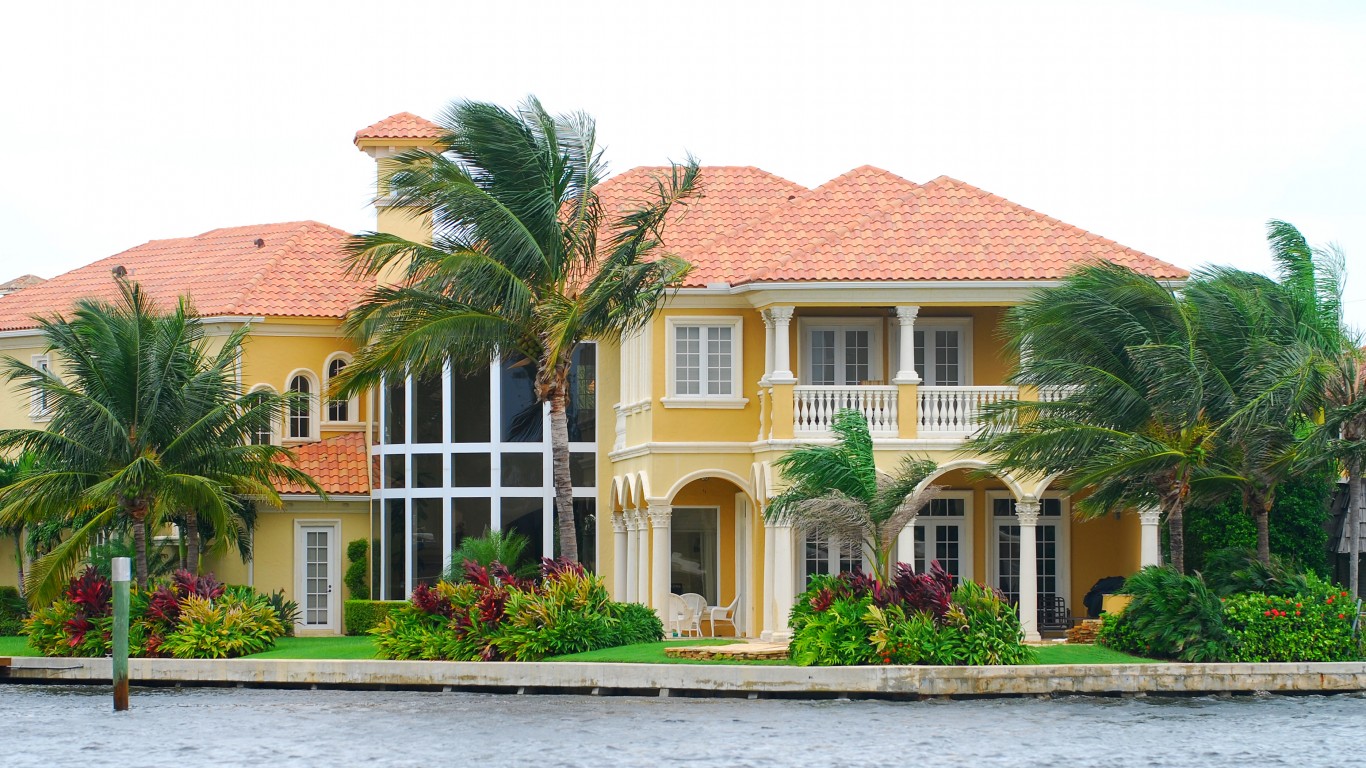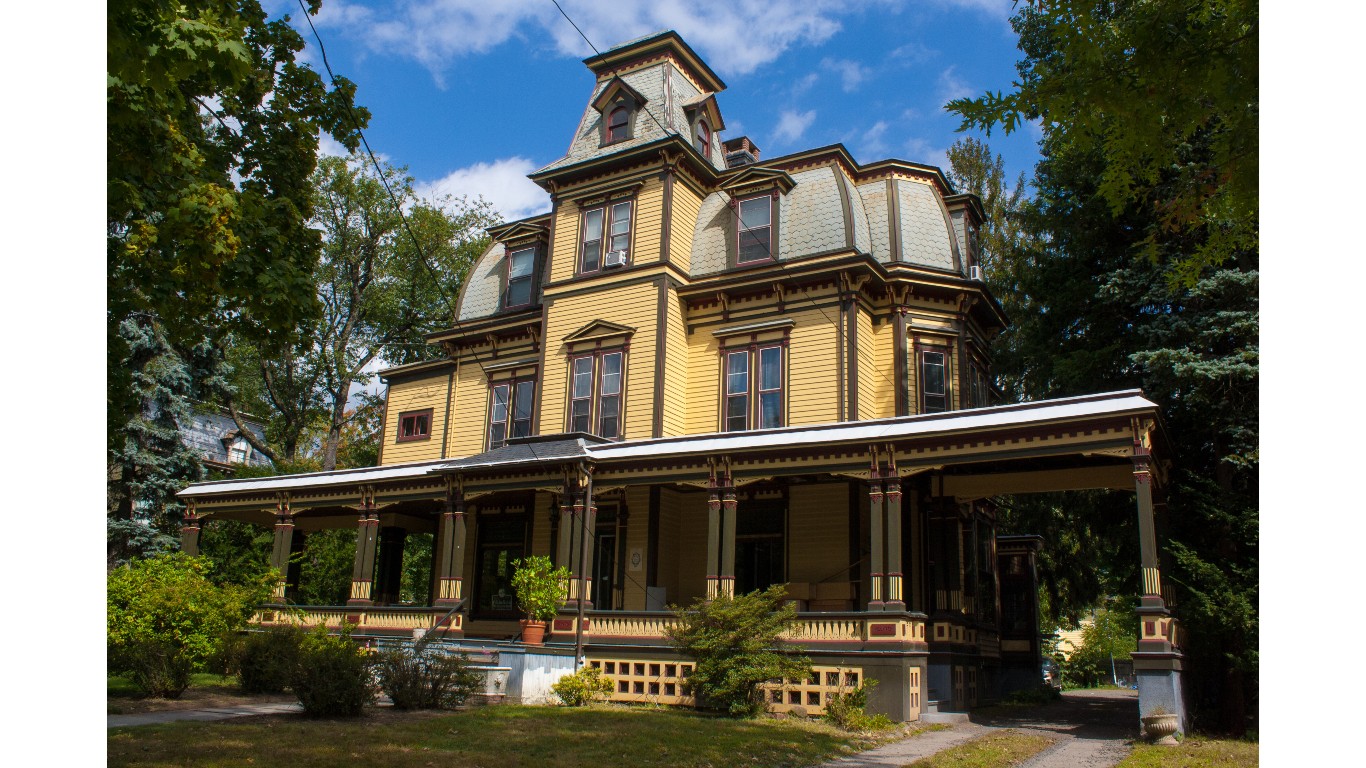
The United States isn’t a very old country. When it was fighting its war for independence from England, China’s Qing Dynasty had already ruled for 130 years, India’s Mughal Empire was beginning to crumble after more than two centuries, and France was only years away from violently upending nearly 1,000 years of absolute monarchy. Some Italians today live in homes originally built during the Middle Ages.
In the United States, most homes and historical sites, unless they’re indigenous or pre-colonial, date back only a few hundred years at best, and most Americans live in homes that were built during the suburbanization boom following World War II.
For that reason, it doesn’t take much for residential structures in this country to be considered “old.” The U.S. Census Bureau considers a city to have a large number of old homes if it has a significant share of residential properties built before 1960. For example, more than 80% of homes in Levittown, New York, were built before 1960, so Levittown is considered comparatively aged – though most of its homes went up during a construction boom that began in 1949.
To determine the American cities with the oldest homes, 24/7 Tempo reviewed five-year data on the age of housing units from the U.S. Census Bureau’s 2021 American Community Survey. Cities, towns, villages, and Census-designated places with at least 50,000 residents were ranked based on the percentage of housing units built prior to 1960. Supplemental data on housing units built in 2000 or later, median home value for all housing units, and total population also came from the 2021 ACS and are five-year estimates. Data on historic places came from the National Register of Historic Places and is current as of July 2023.
Click here for a list of the American cities with the oldest homes
Some of the oldest homes in these and other cities were granted National Historic Landmark status after President Lyndon B. Johnson signed into law the National Historic Preservation Act in October 1966. Before then, the U.S. had no formal or consistent way to preserve historic and archaeological sites. (See America’s favorite destinations managed by the government.)
One of these oldest structures on the federal registry is at Eleutherian Mills, a former gunpowder-manufacturing site near Wilmington, Delaware. The complex was completed in 1803 for Éleuthère Irénée du Pont de Nemours, the French chemist and industrialist who fled the French Revolution with his family and founded the multinational chemical company that still bears the family name, DuPont. The home at the site is now a museum.
One of the more recent additions to the registry’s list of historic homes is located 11 miles west of Chicago. Known as the Central Berwyn Bungalow Historic District, the area is a showcase of distinct “Chicago-style” brick bungalows built in the 1920s and 1930s. The homes were added to the list of historic places in 2015. (These are the states with the oldest houses.)
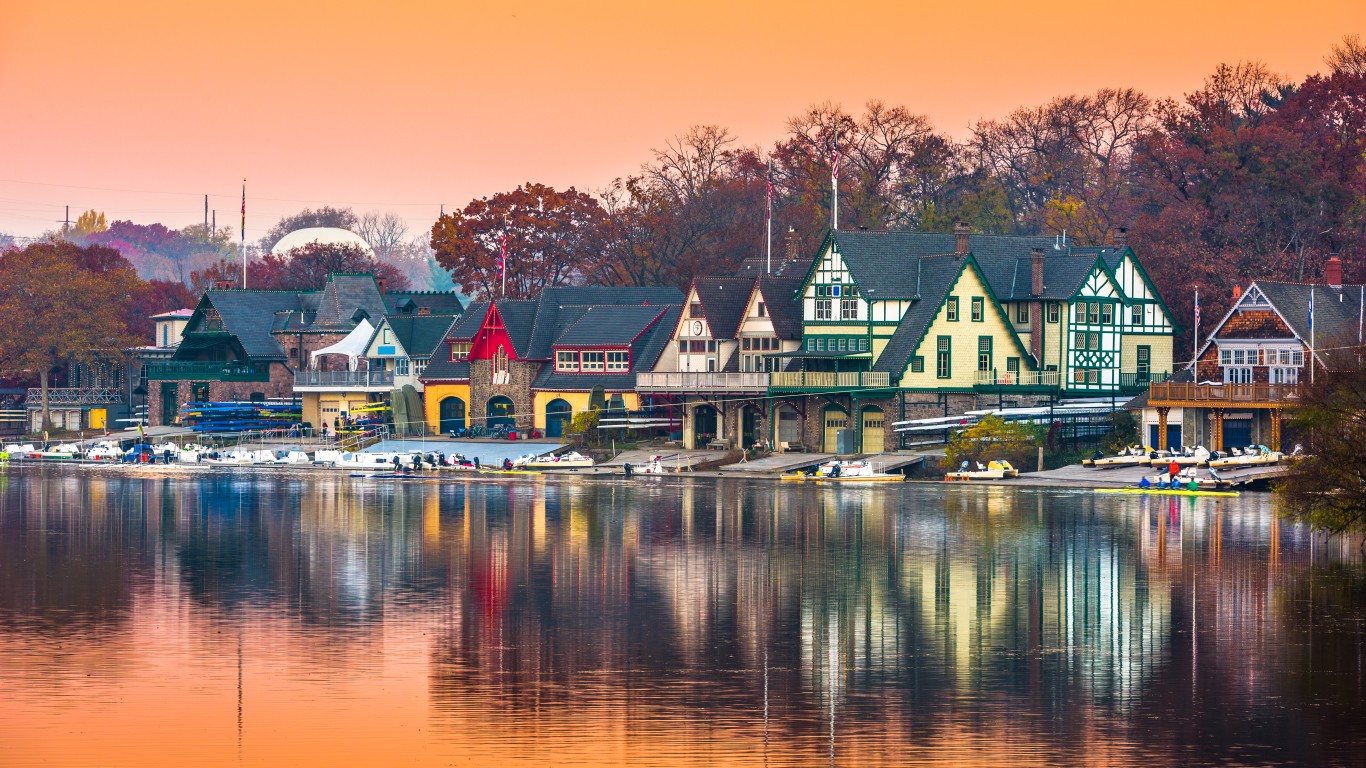
40. Philadelphia, Pennsylvania
> Housing units built before 1960: 67.6%
> Housing units built since 2000: 6.7%
> Median home value: $184,100
> Total population: 1,596,865
> First registered historic property or district: Colonial Germantown Historic District (registered 1966)
[in-text-ad]
39. Wilmington, Delaware
> Housing units built before 1960: 67.7%
> Housing units built since 2000: 9.2%
> Median home value: $173,800
> Total population: 70,926
> First registered historic property or district: Eleutherian Mills (registered 1966)
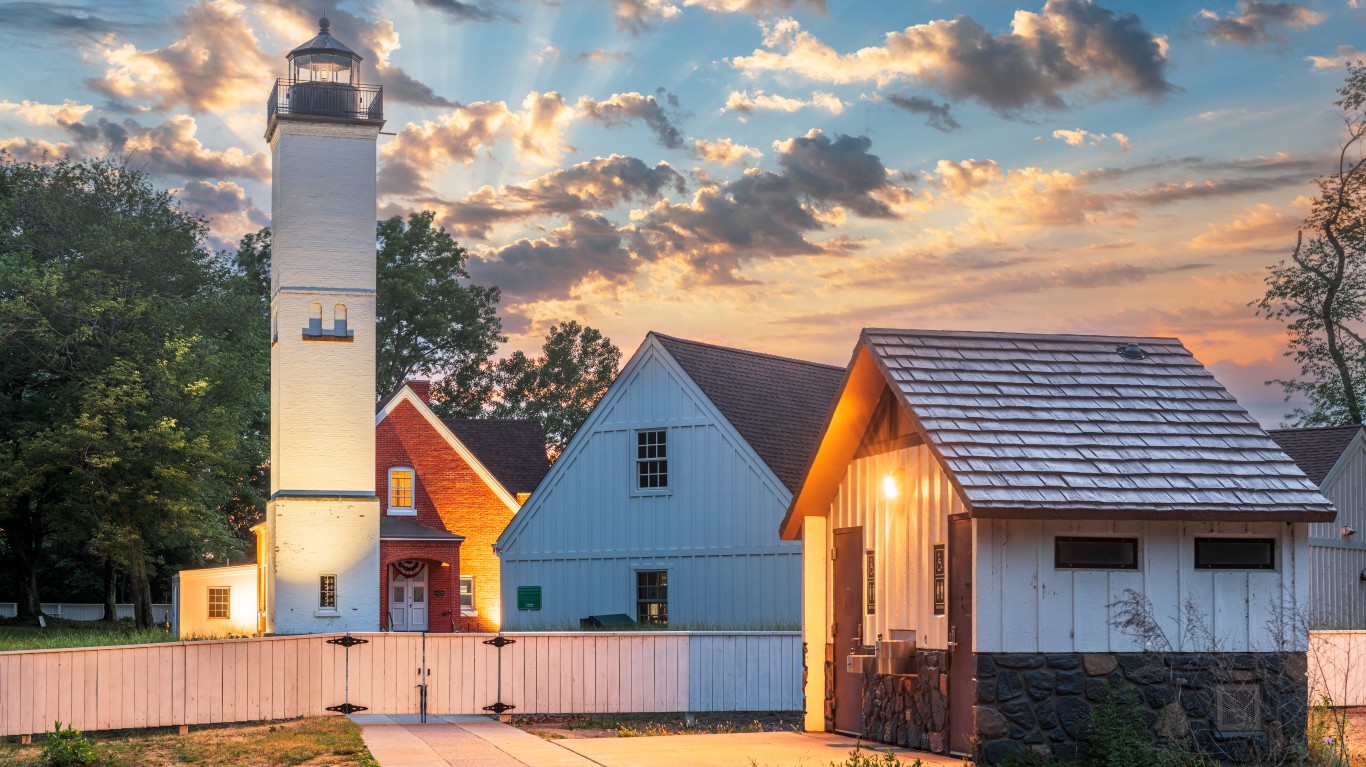
38. Erie, Pennsylvania
> Housing units built before 1960: 67.8%
> Housing units built since 2000: 3.0%
> Median home value: $91,300
> Total population: 95,536
> First registered historic property or district: West Park Place (registered 1980)
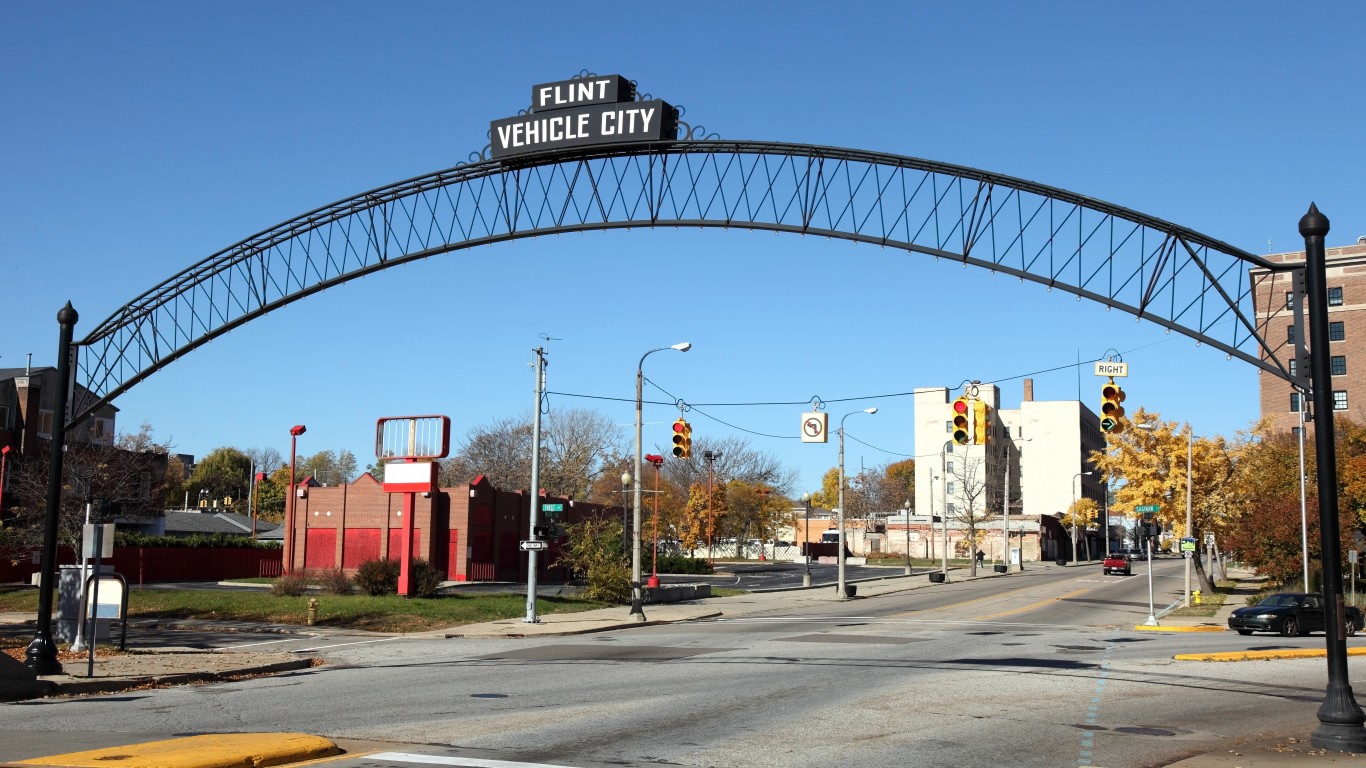
37. Flint, Michigan
> Housing units built before 1960: 67.8%
> Housing units built since 2000: 1.8%
> Median home value: $35,000
> Total population: 83,312
> First registered historic property or district: Civic Park Historic District (registered 1979)
[in-text-ad-2]
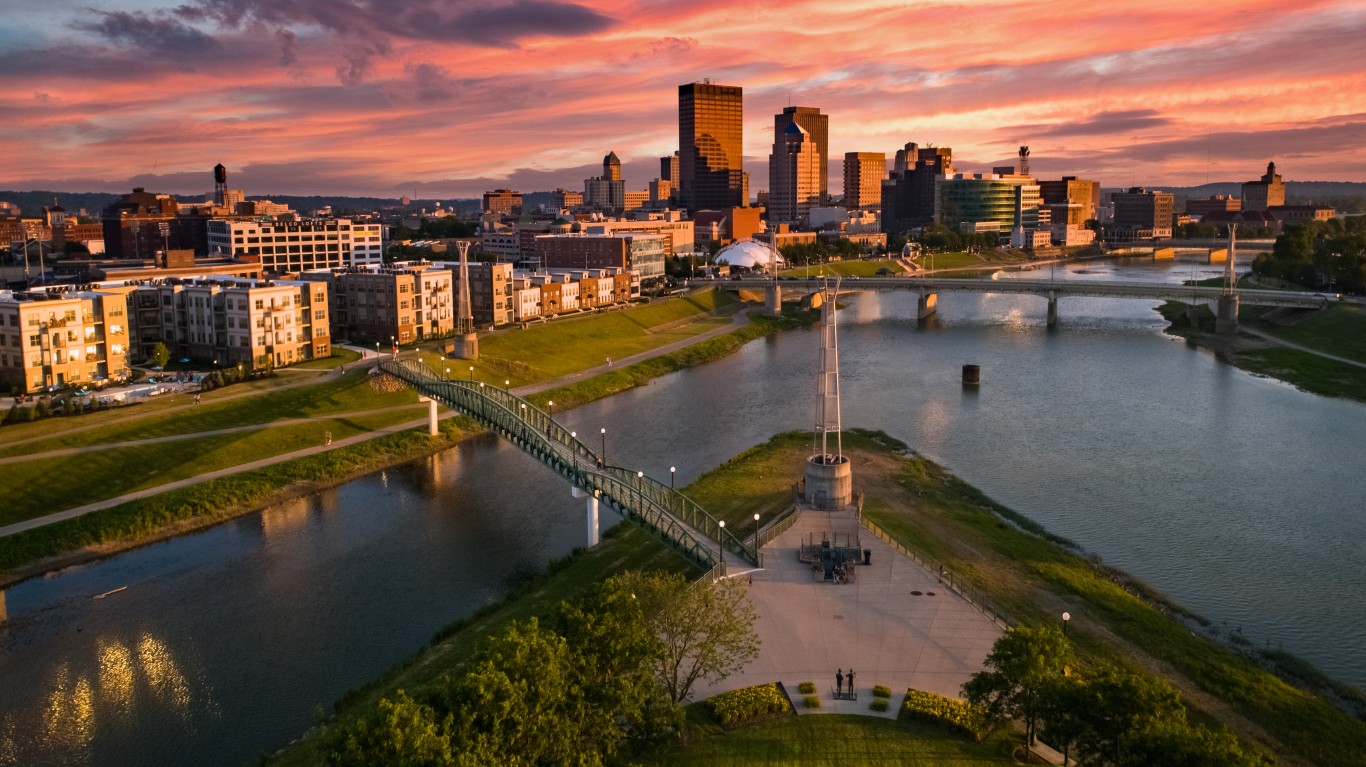
36. Dayton, Ohio
> Housing units built before 1960: 68.0%
> Housing units built since 2000: 5.1%
> Median home value: $73,300
> Total population: 138,416
> First registered historic property or district: Oregon Historic District (registered 1975)
35. Whittier, California
> Housing units built before 1960: 68.1%
> Housing units built since 2000: 2.0%
> Median home value: $630,200
> Total population: 87,184
> First registered historic property or district: Pico House (registered 1973)
[in-text-ad]
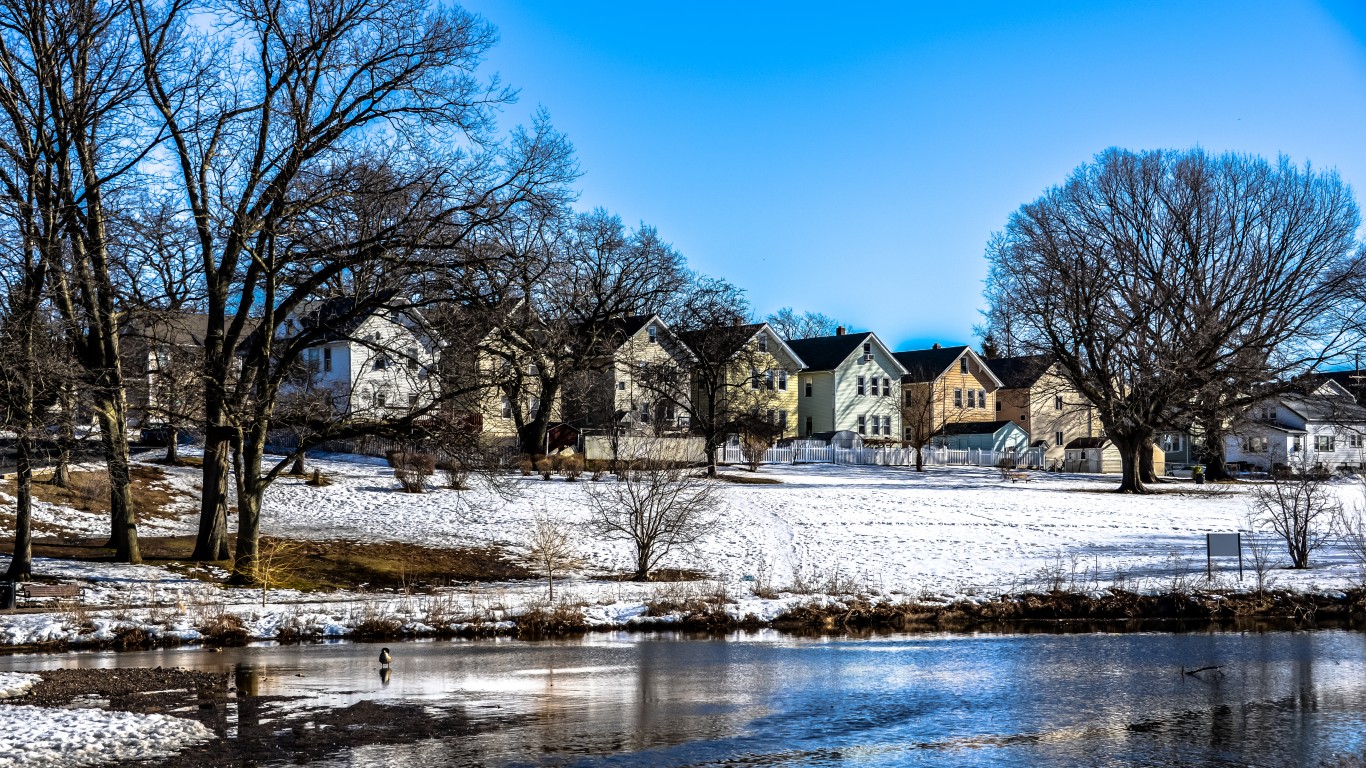
34. Clifton, New Jersey
> Housing units built before 1960: 68.5%
> Housing units built since 2000: 6.7%
> Median home value: $369,800
> Total population: 89,460
> First registered historic property or district: U.S. Animal Quarantine Station (registered 1981)
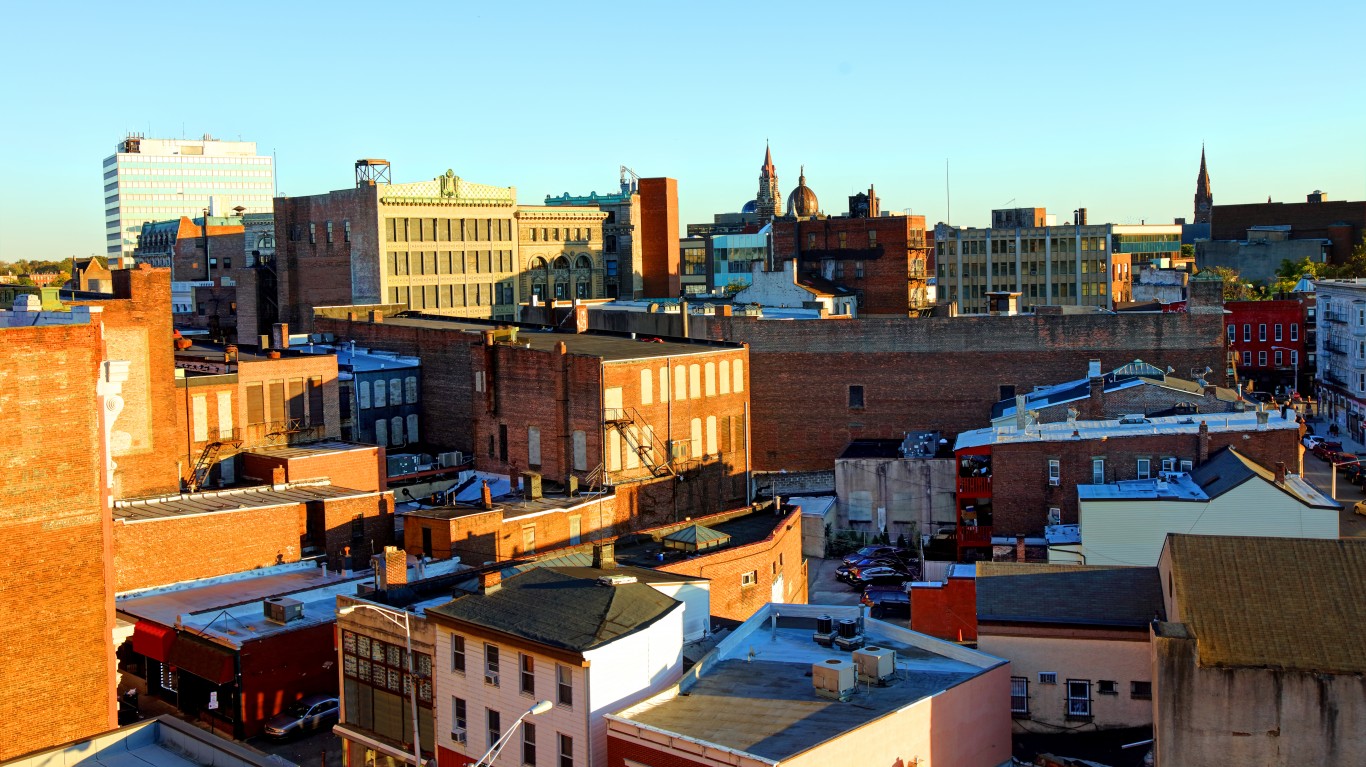
33. Passaic, New Jersey
> Housing units built before 1960: 68.6%
> Housing units built since 2000: 5.2%
> Median home value: $347,900
> Total population: 70,308
> First registered historic property or district: Botany Worsted Mills Historic District (registered 1991)
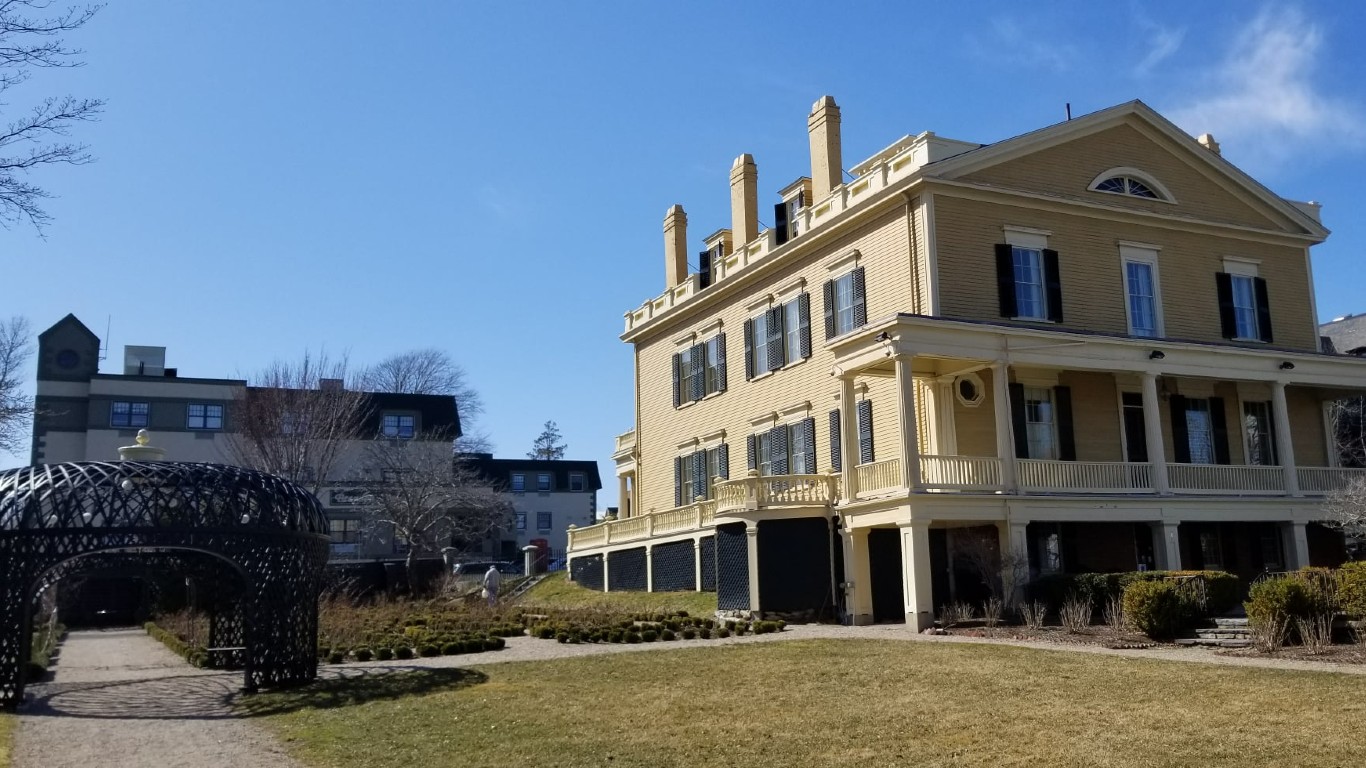
32. New Bedford, Massachusetts
> Housing units built before 1960: 69.2%
> Housing units built since 2000: 4.7%
> Median home value: $258,300
> Total population: 100,309
> First registered historic property or district: New Bedford Historic District (registered 1966)
[in-text-ad-2]
31. Canton, Ohio
> Housing units built before 1960: 69.5%
> Housing units built since 2000: 4.0%
> Median home value: $76,800
> Total population: 71,097
> First registered historic property or district: Ridgewood Historic District (registered 1982)
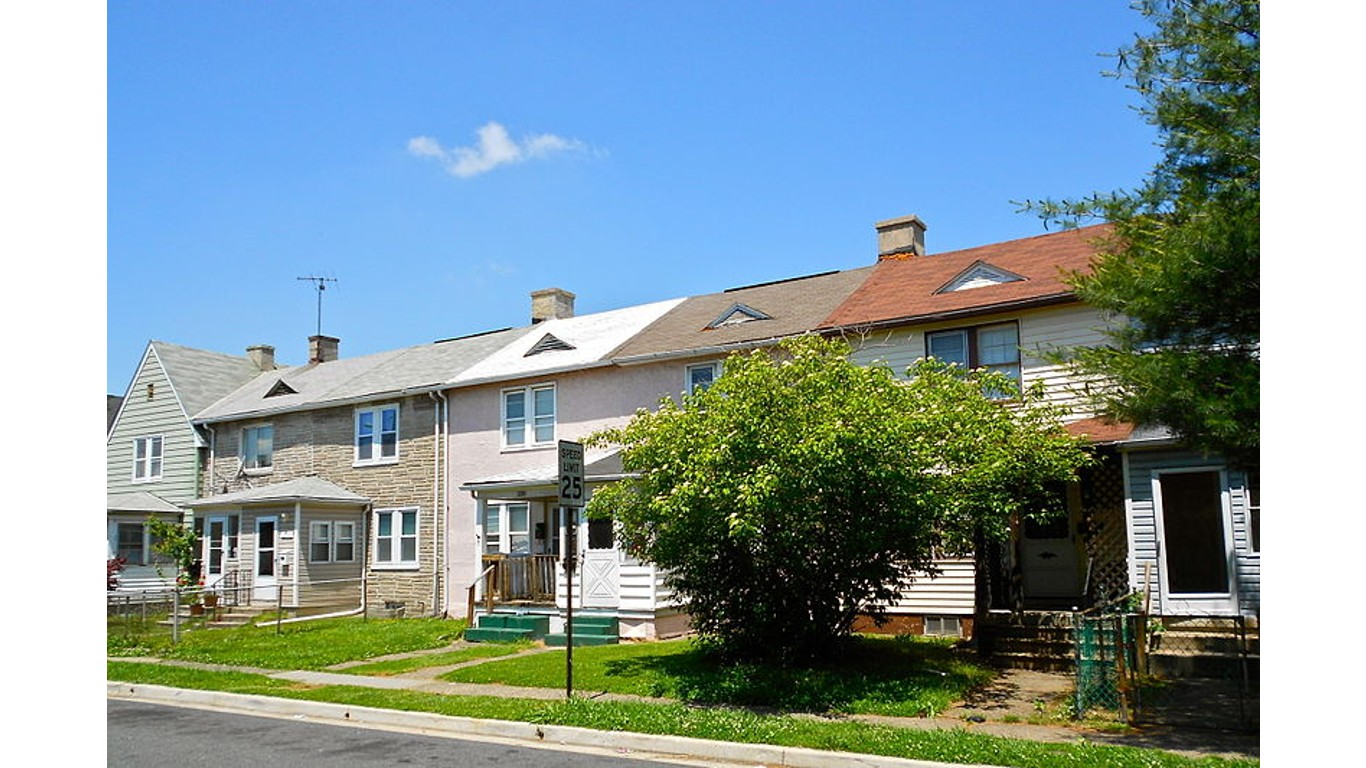
30. Dundalk, Maryland
> Housing units built before 1960: 69.9%
> Housing units built since 2000: 4.9%
> Median home value: $160,200
> Total population: 66,426
> First registered historic property or district: Dundalk Historic District (registered 1983)
[in-text-ad]
29. Newton, Massachusetts
> Housing units built before 1960: 69.9%
> Housing units built since 2000: 9.7%
> Median home value: $992,800
> Total population: 88,647
> First registered historic property or district: Woodland, Newton Highlands, and Newton Centre Railroad Stations, and Baggage and Express Building (registered 1976)

28. Somerville, Massachusetts
> Housing units built before 1960: 70.1%
> Housing units built since 2000: 9.2%
> Median home value: $739,900
> Total population: 80,608
> First registered historic property or district: Powder House Park (registered 1975)
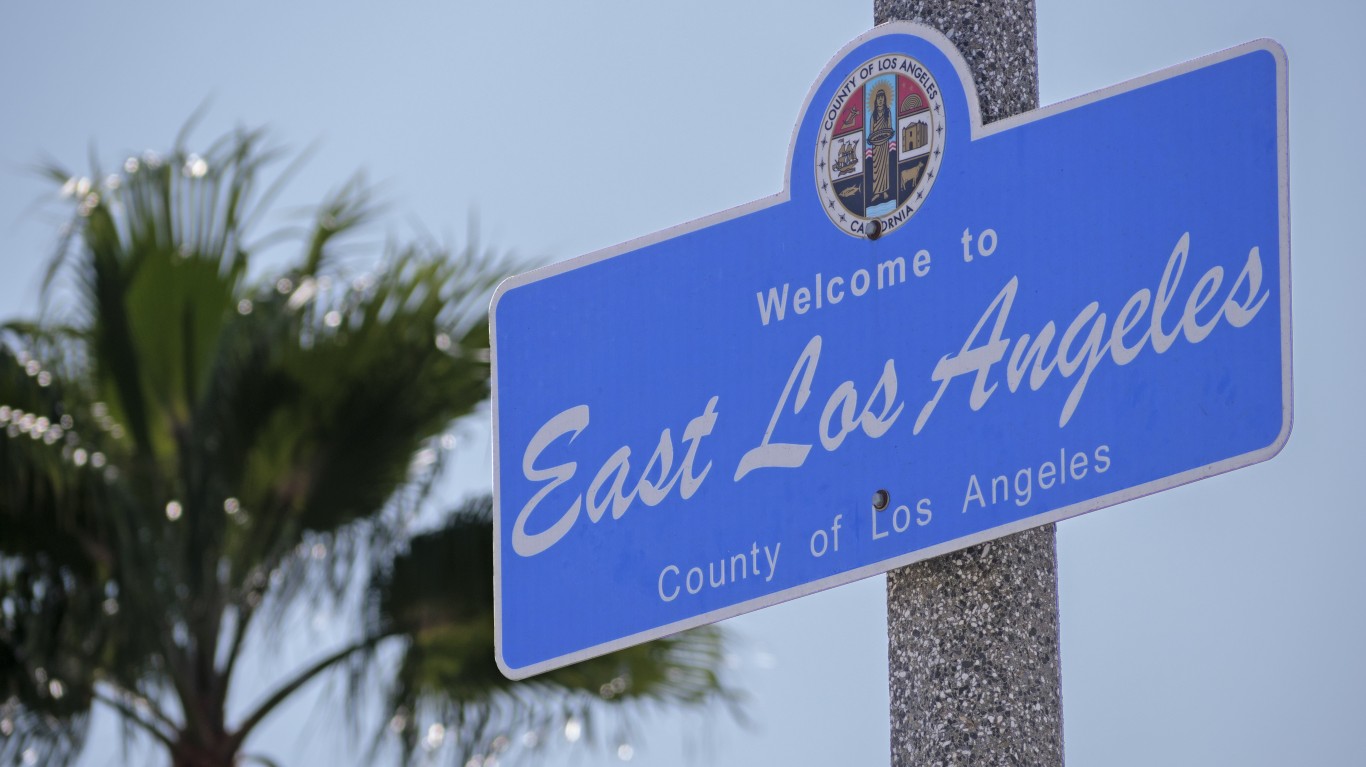
27. East Los Angeles, California
> Housing units built before 1960: 70.2%
> Housing units built since 2000: 3.2%
> Median home value: $476,200
> Total population: 118,964
> First registered historic property or district: Chicano Moratorium March Site (registered 2020)
[in-text-ad-2]
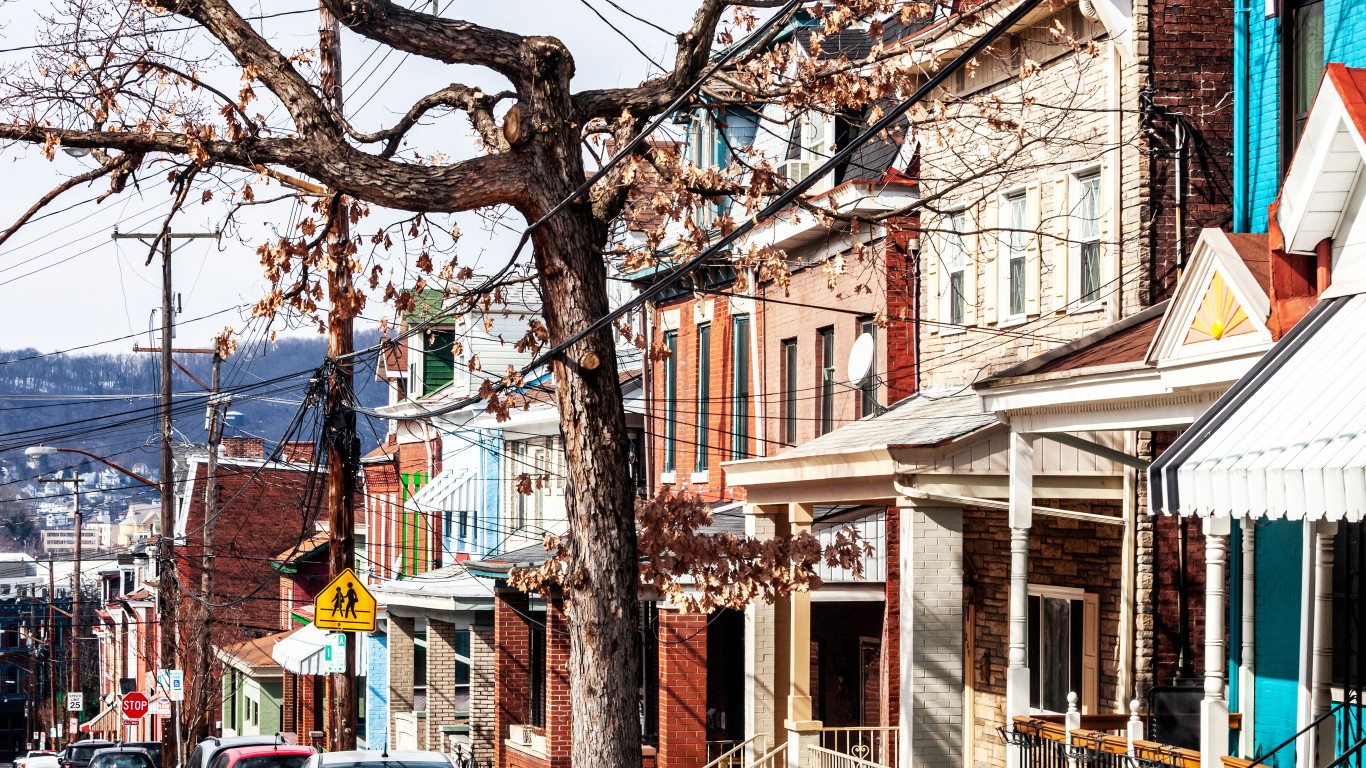
26. Pittsburgh, Pennsylvania
> Housing units built before 1960: 70.2%
> Housing units built since 2000: 6.9%
> Median home value: $147,600
> Total population: 303,207
> First registered historic property or district: Evergreen Hamlet (registered 1974)
25. Plainfield, New Jersey
> Housing units built before 1960: 70.3%
> Housing units built since 2000: 5.3%
> Median home value: $287,300
> Total population: 54,183
> First registered historic property or district: Crescent Area Historic District (registered 1980)
[in-text-ad]
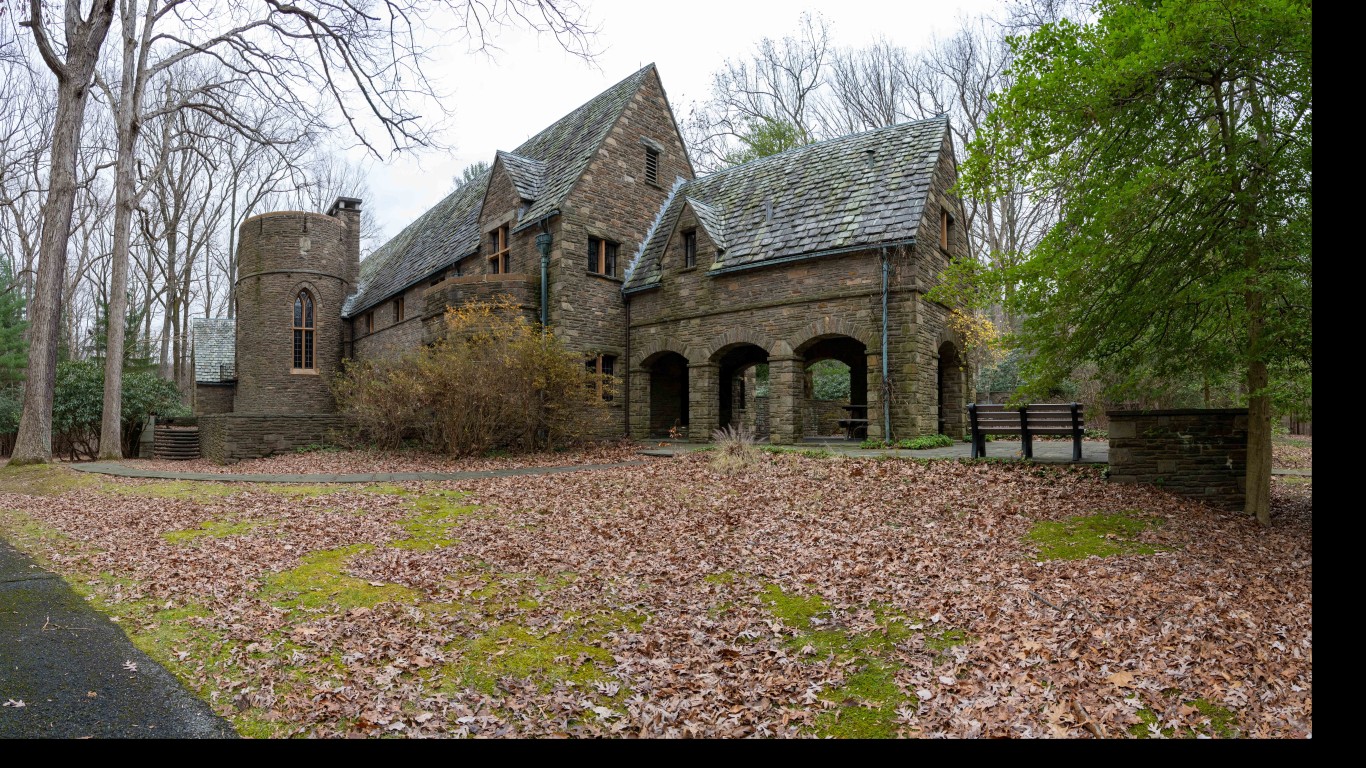
24. Reading, Pennsylvania
> Housing units built before 1960: 70.4%
> Housing units built since 2000: 2.8%
> Median home value: $83,100
> Total population: 94,161
> First registered historic property or district: Meinig Glove Factory-E. Richard Meinig Co. (registered 1985)
23. Providence, Rhode Island
> Housing units built before 1960: 70.5%
> Housing units built since 2000: 5.9%
> Median home value: $248,900
> Total population: 188,812
> First registered historic property or district: Roger Williams Park Historic District (registered 1966)
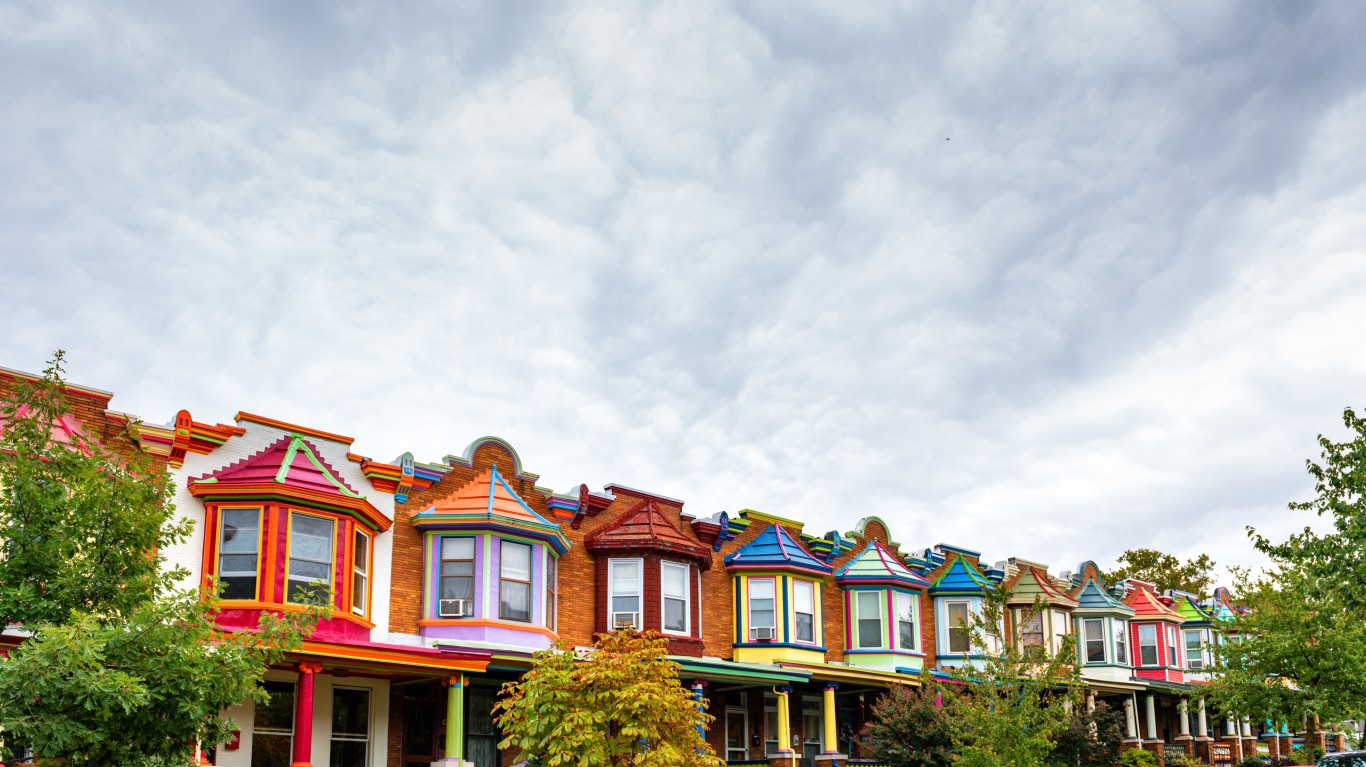
22. Baltimore, Maryland
> Housing units built before 1960: 70.5%
> Housing units built since 2000: 7.0%
> Median home value: $175,300
> Total population: 592,211
> First registered historic property or district: U.S. Coast Guard Yard Curtis Bay (registered 1983)
[in-text-ad-2]
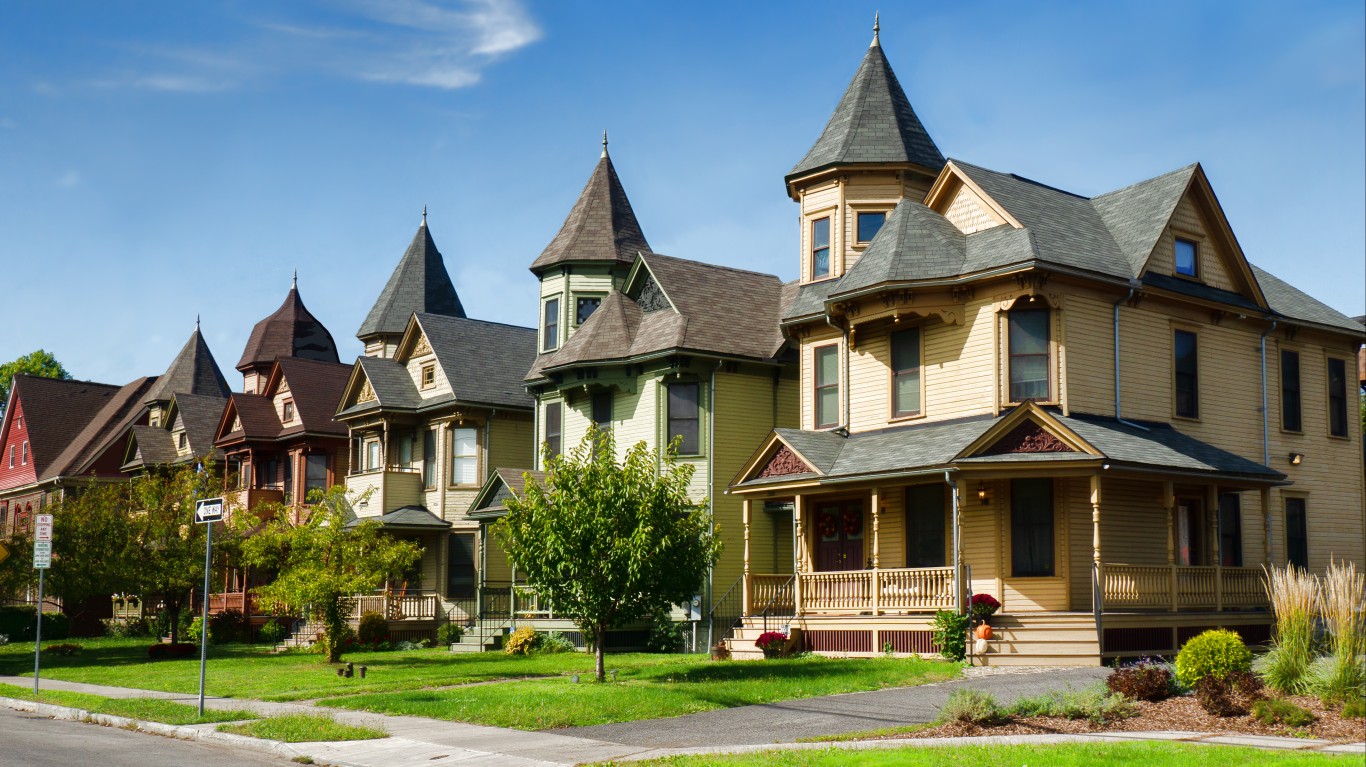
21. Syracuse, New York
> Housing units built before 1960: 70.9%
> Housing units built since 2000: 4.2%
> Median home value: $99,200
> Total population: 146,781
> First registered historic property or district: Hanover Square Historic District (registered 1976)
20. Oak Park, Illinois
> Housing units built before 1960: 70.9%
> Housing units built since 2000: 6.6%
> Median home value: $409,000
> Total population: 54,100
> First registered historic property or district: Frank Lloyd Wright-Prairie School of Architecture Historic District (registered 1973)
[in-text-ad]
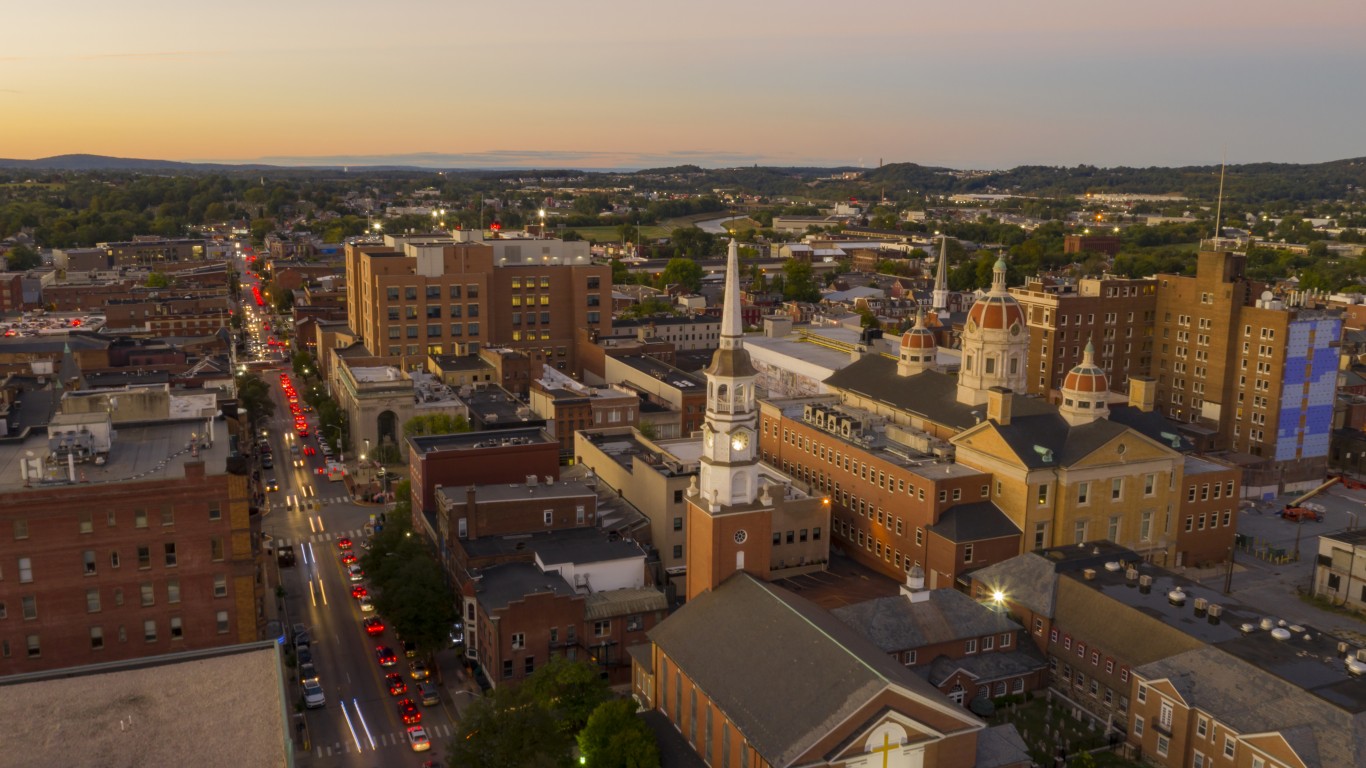
19. Scranton, Pennsylvania
> Housing units built before 1960: 72.0%
> Housing units built since 2000: 4.7%
> Median home value: $112,600
> Total population: 75,987
> First registered historic property or district: Lackawanna Avenue Commercial Historic District (registered 1983)
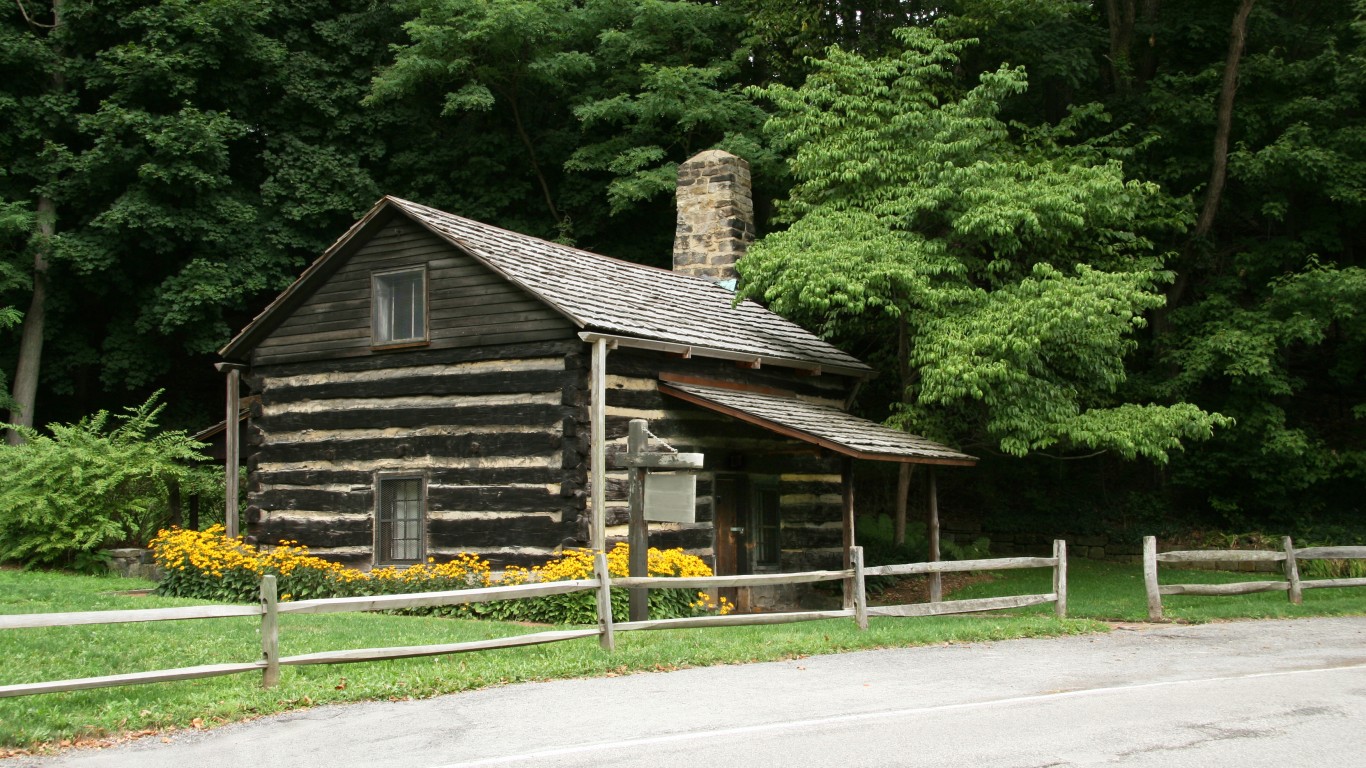
18. Youngstown, Ohio
> Housing units built before 1960: 72.2%
> Housing units built since 2000: 3.4%
> Median home value: $48,600
> Total population: 61,274
> First registered historic property or district: Arlington Avenue District (registered 1974)
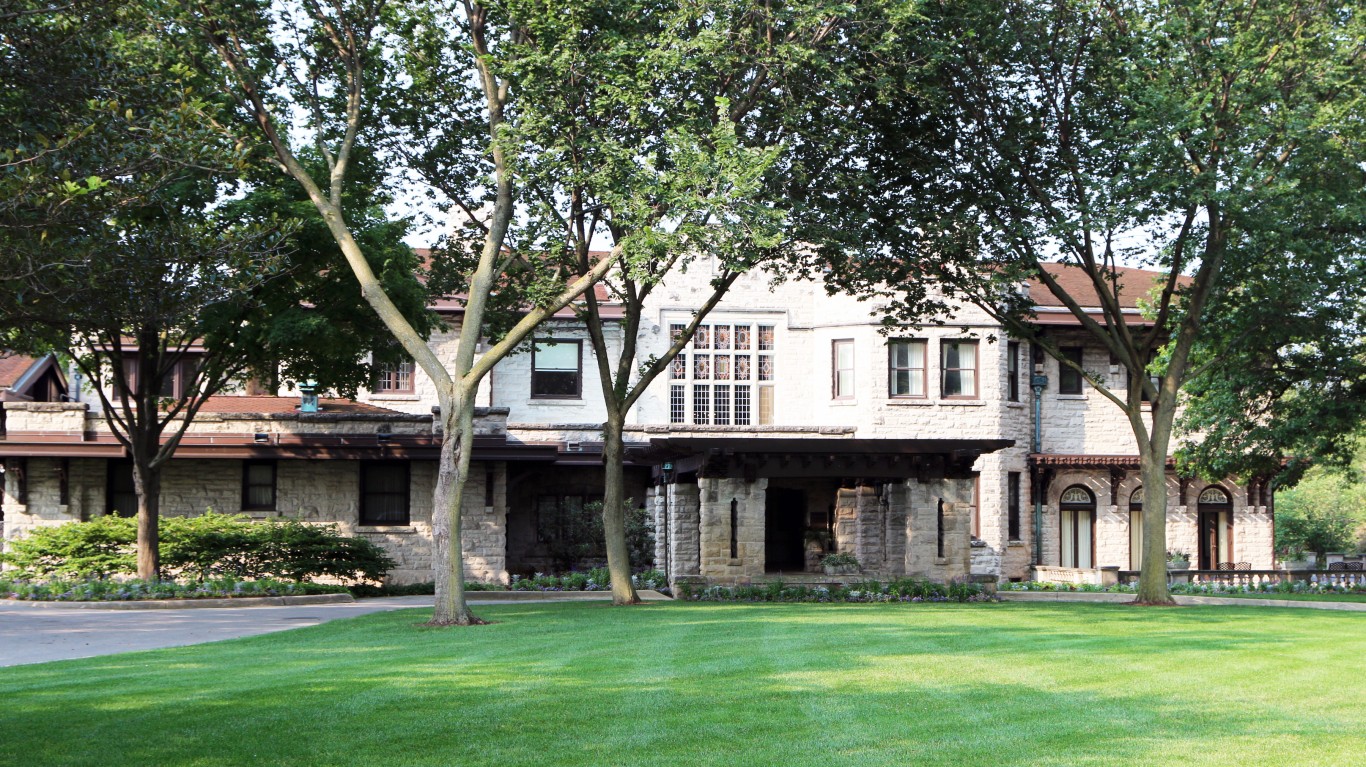
17. Dearborn, Michigan
> Housing units built before 1960: 72.3%
> Housing units built since 2000: 6.2%
> Median home value: $162,900
> Total population: 107,985
> First registered historic property or district: Fair Lane (registered 1966)
[in-text-ad-2]
16. Schenectady, New York
> Housing units built before 1960: 72.8%
> Housing units built since 2000: 3.3%
> Median home value: $118,300
> Total population: 66,809
> First registered historic property or district: Stockade Historic District (registered 1973)
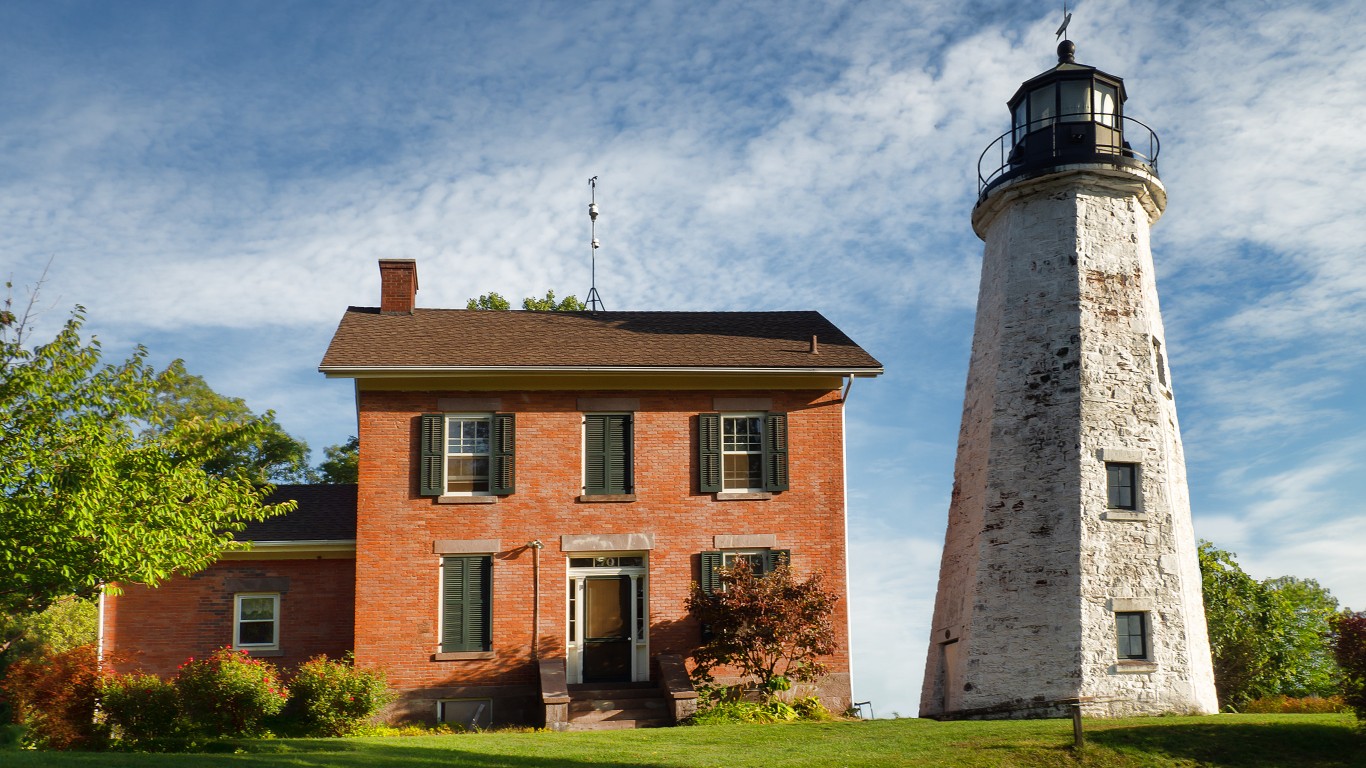
15. Rochester, New York
> Housing units built before 1960: 72.9%
> Housing units built since 2000: 3.5%
> Median home value: $93,100
> Total population: 211,100
> First registered historic property or district: Campbell-Whittlesey House (registered 1971)
[in-text-ad]
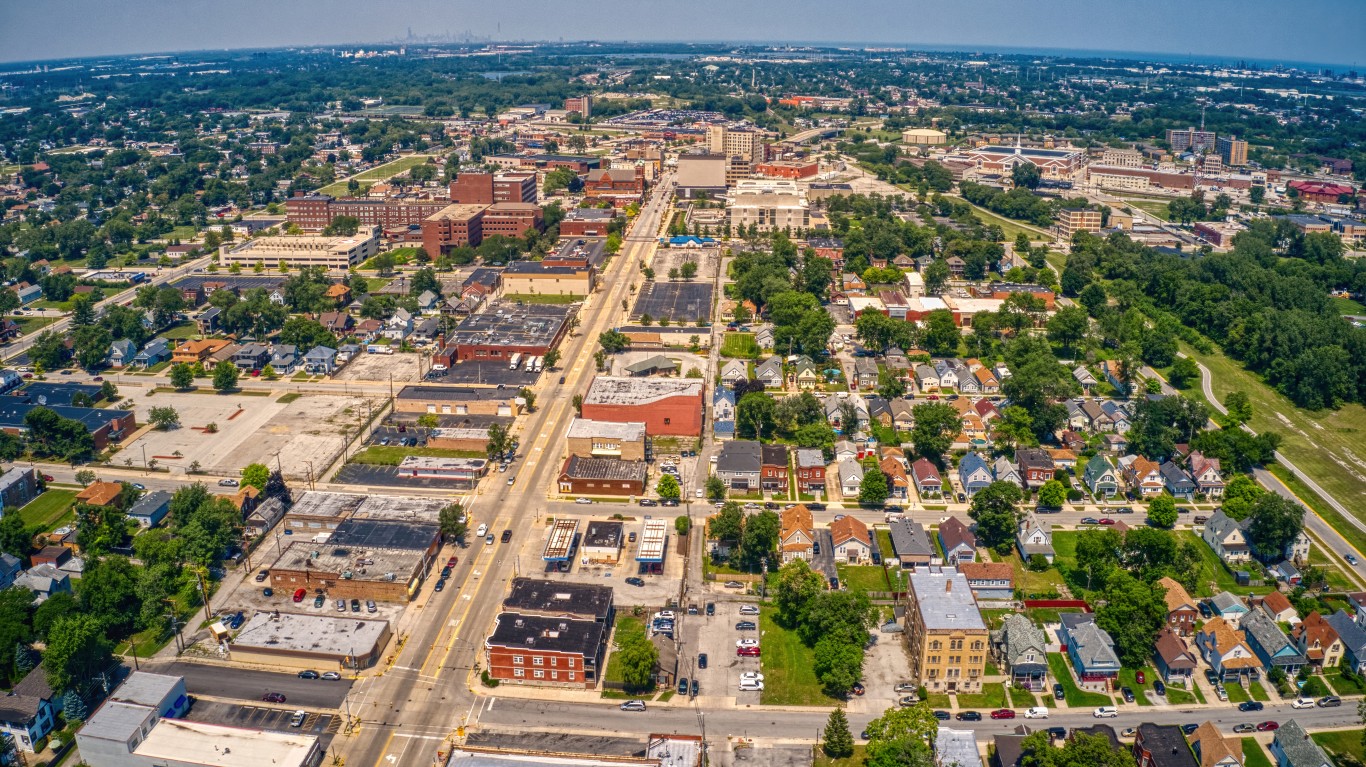
14. Hammond, Indiana
> Housing units built before 1960: 73.3%
> Housing units built since 2000: 3.0%
> Median home value: $107,500
> Total population: 77,491
> First registered historic property or district: State Street Commercial Historic District (registered 1999)
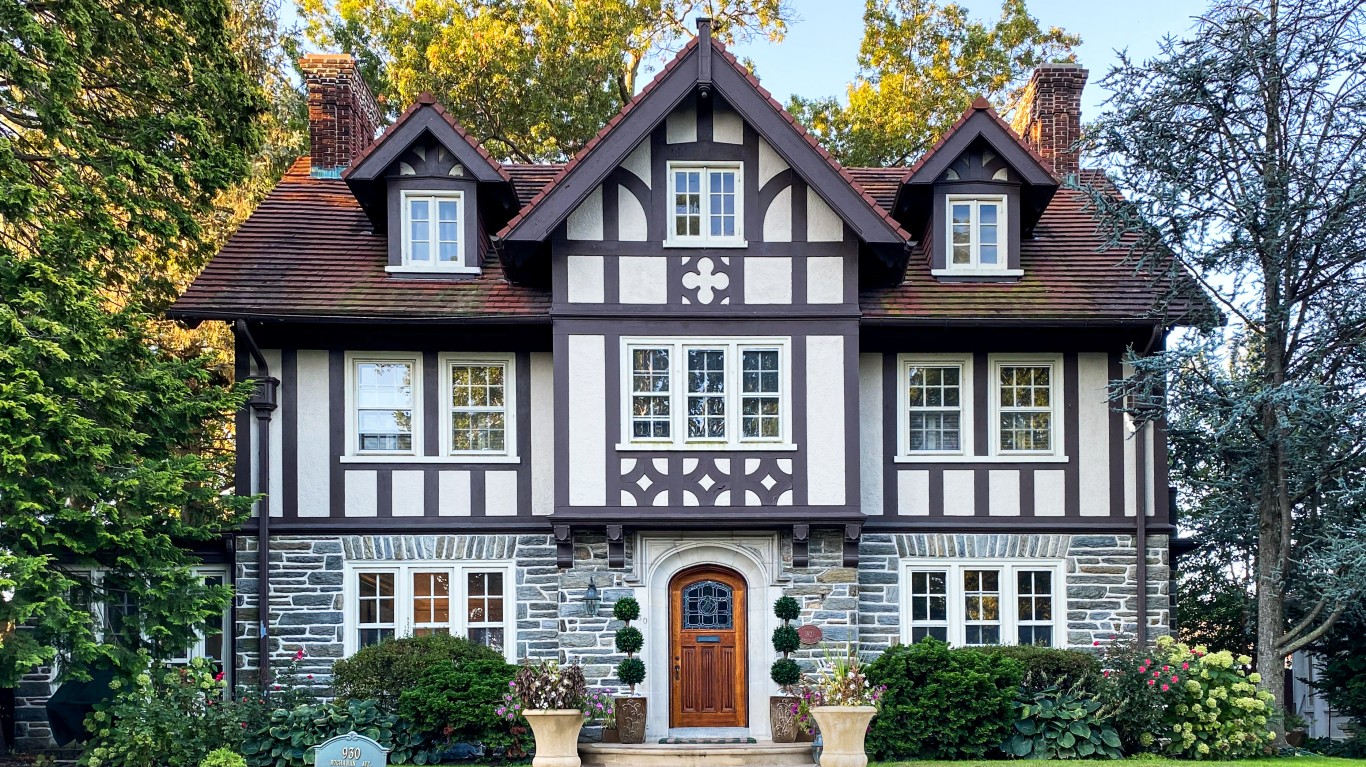
13. Lancaster, Pennsylvania
> Housing units built before 1960: 73.5%
> Housing units built since 2000: 3.7%
> Median home value: $145,300
> Total population: 58,034
> First registered historic property or district: Lancaster Historic District (registered 1979)
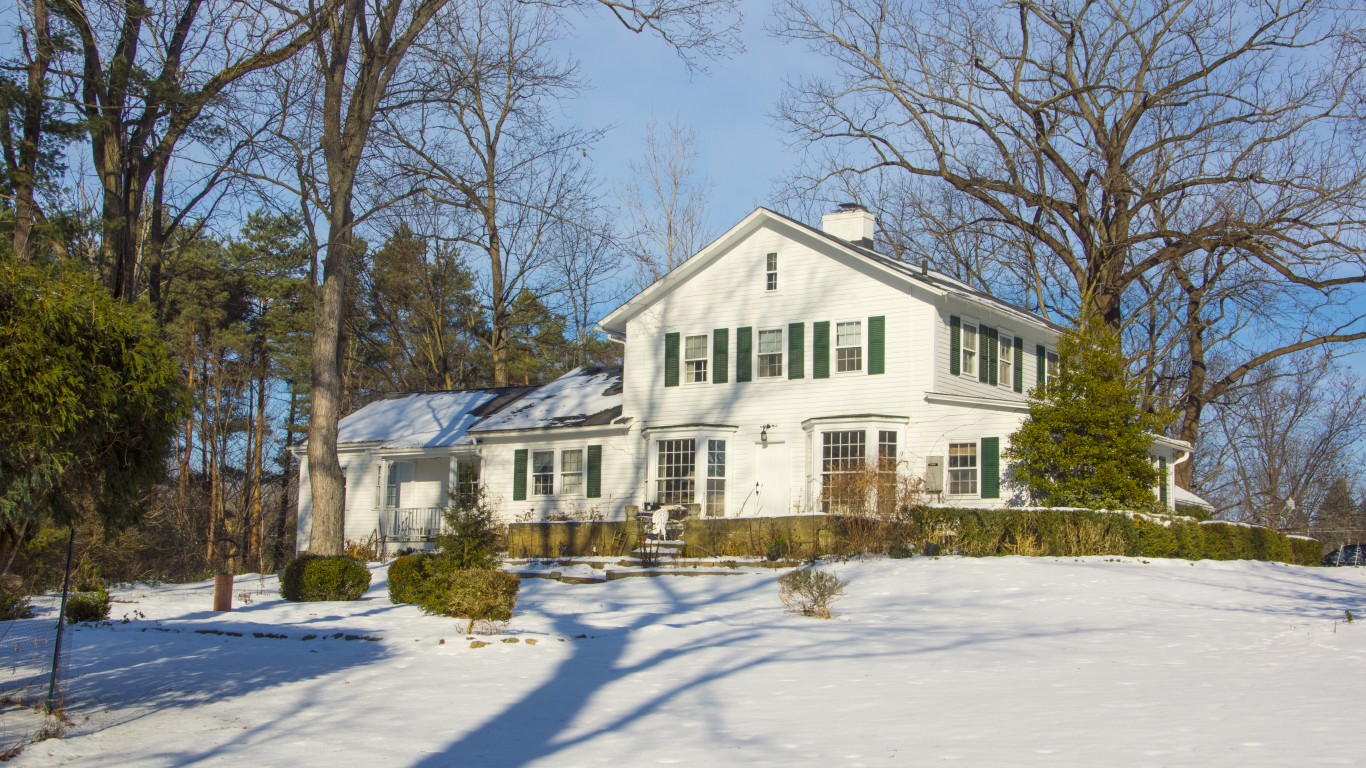
12. Cleveland, Ohio
> Housing units built before 1960: 73.9%
> Housing units built since 2000: 6.5%
> Median home value: $74,700
> Total population: 374,861
> First registered historic property or district: Mather, Flora Stone, College District (registered 1974)
[in-text-ad-2]
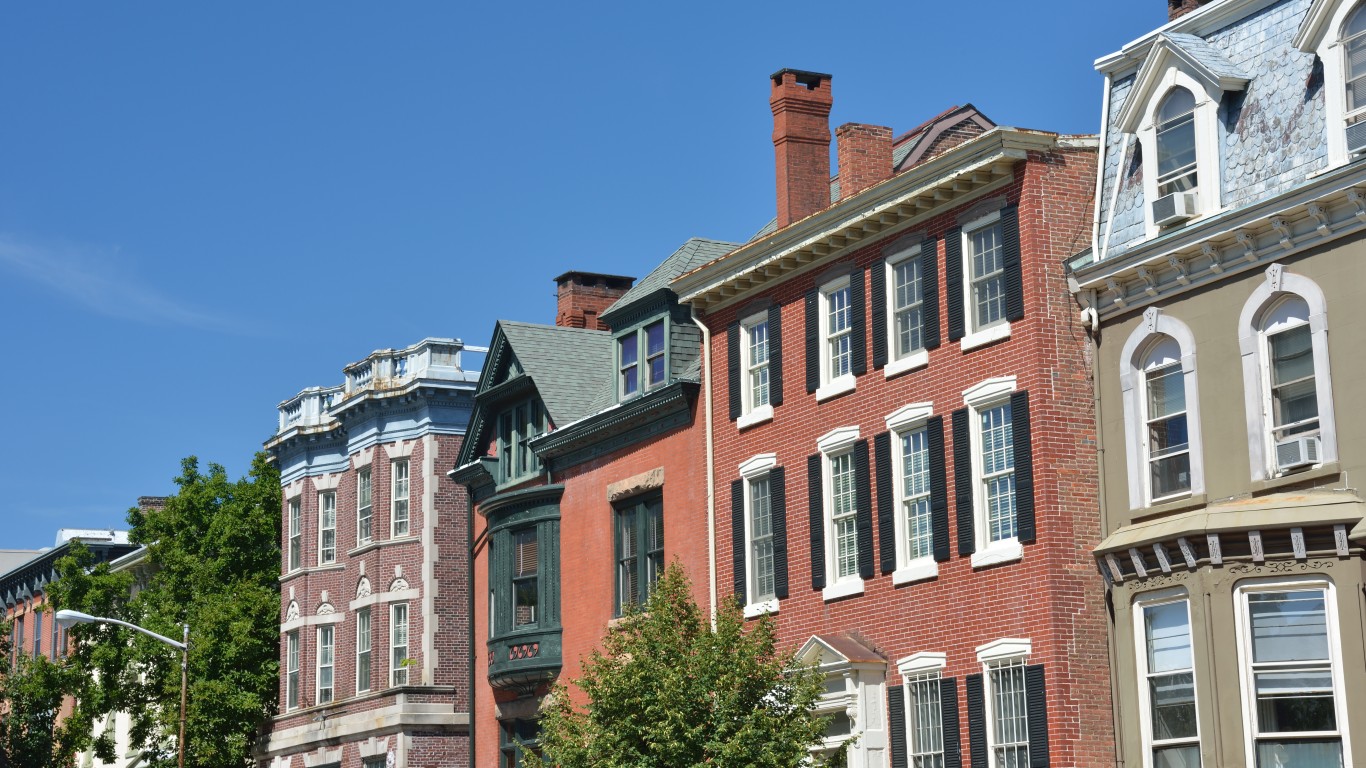
11. Trenton, New Jersey
> Housing units built before 1960: 74.0%
> Housing units built since 2000: 5.8%
> Median home value: $96,700
> Total population: 90,097
> First registered historic property or district: State House District (registered 1976)
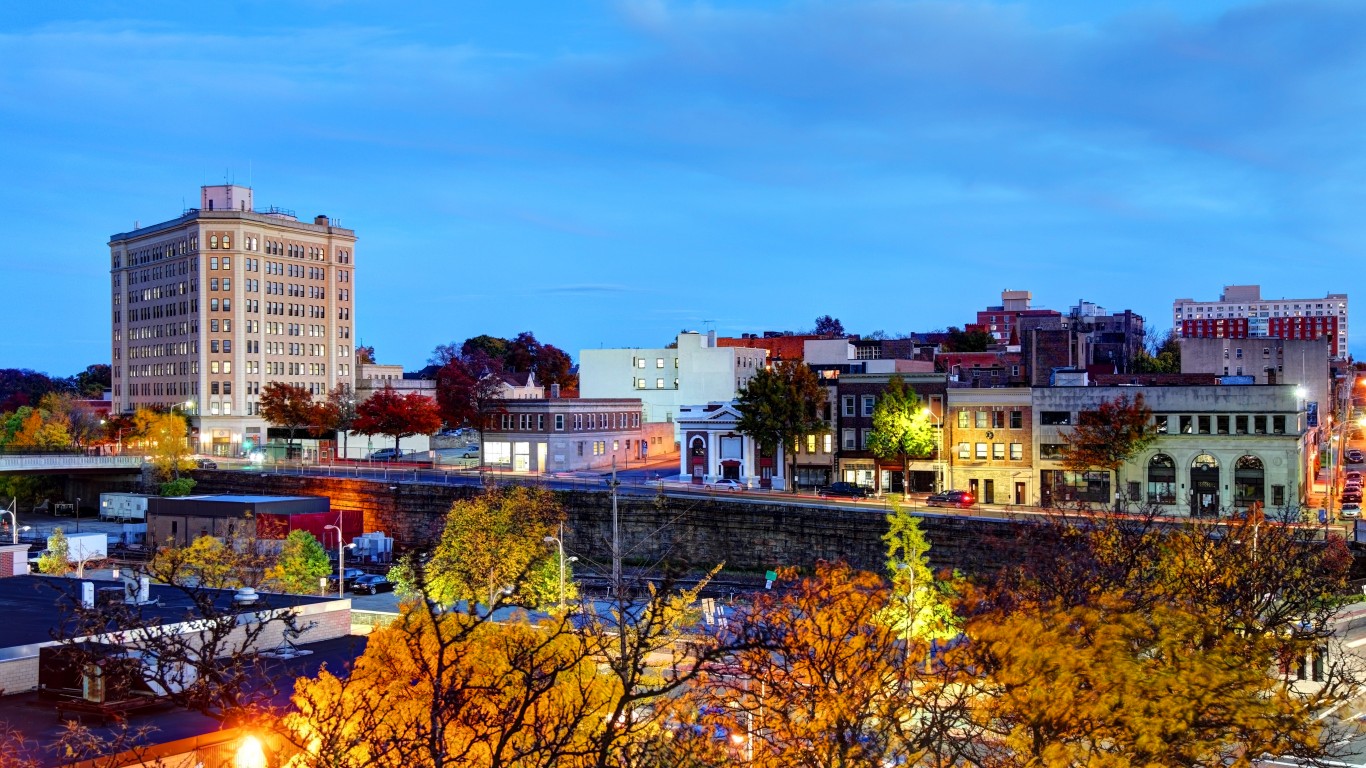
10. Mount Vernon, New York
> Housing units built before 1960: 74.2%
> Housing units built since 2000: 5.4%
> Median home value: $380,500
> Total population: 72,855
> First registered historic property or district: St. Paul’s Church National Historic Site (registered 1966)
[in-text-ad]
9. Lakewood, Ohio
> Housing units built before 1960: 74.8%
> Housing units built since 2000: 1.0%
> Median home value: $185,600
> Total population: 50,841
> First registered historic property or district: Clifton Park Lakefront District (registered 1974)
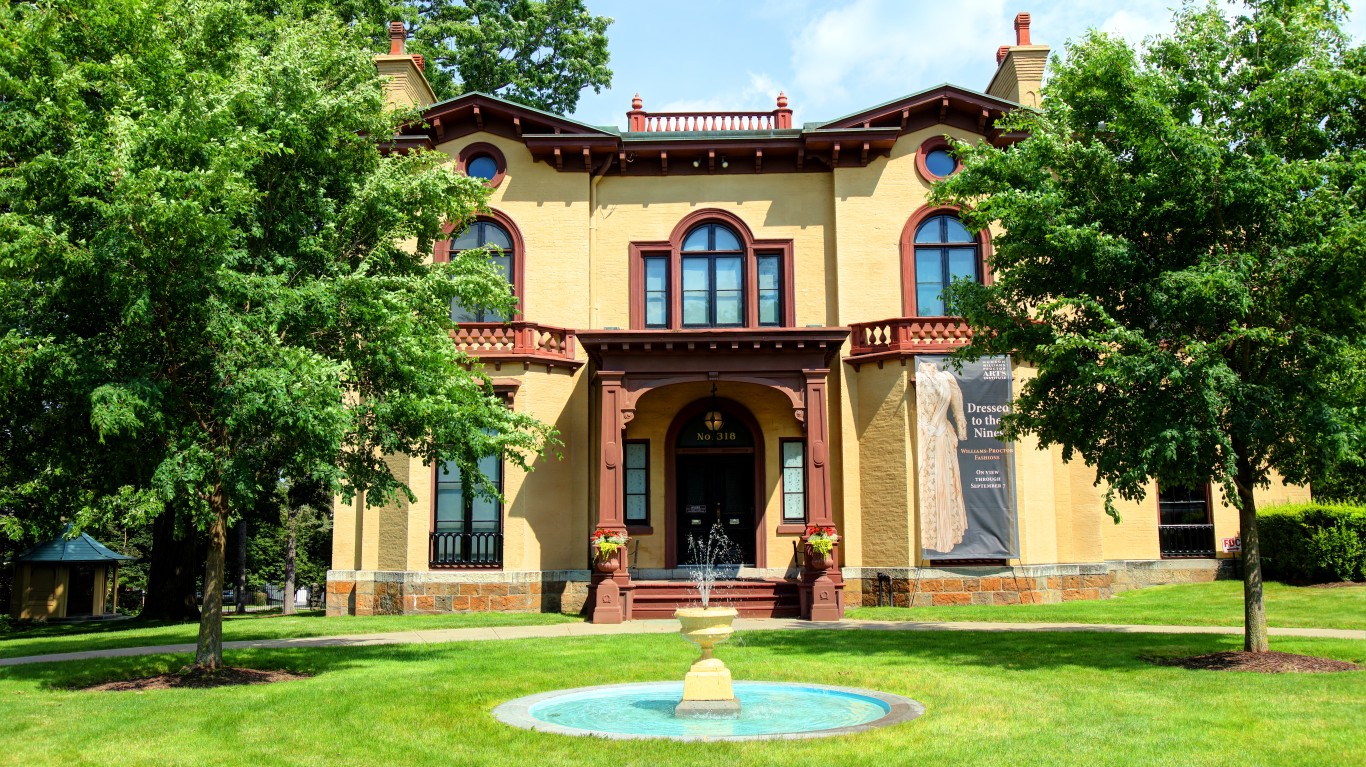
8. Utica, New York
> Housing units built before 1960: 75.5%
> Housing units built since 2000: 2.2%
> Median home value: $106,000
> Total population: 64,723
> First registered historic property or district: Rutger-Steuben Park Historic District (registered 1973)
7. St. Louis, Missouri
> Housing units built before 1960: 76.5%
> Housing units built since 2000: 6.4%
> Median home value: $153,200
> Total population: 302,787
> First registered historic property or district: Williams Creek Archeological District (registered 1977)
[in-text-ad-2]
6. Detroit, Michigan
> Housing units built before 1960: 78.3%
> Housing units built since 2000: 4.0%
> Median home value: $57,700
> Total population: 645,658
> First registered historic property or district: West Canfield Historic District (registered 1971)
5. Levittown, Pennsylvania
> Housing units built before 1960: 80.0%
> Housing units built since 2000: 2.1%
> Median home value: $241,900
> Total population: 51,100
> First registered historic property or district: Phineas Pemberton House (registered 1971)
[in-text-ad]
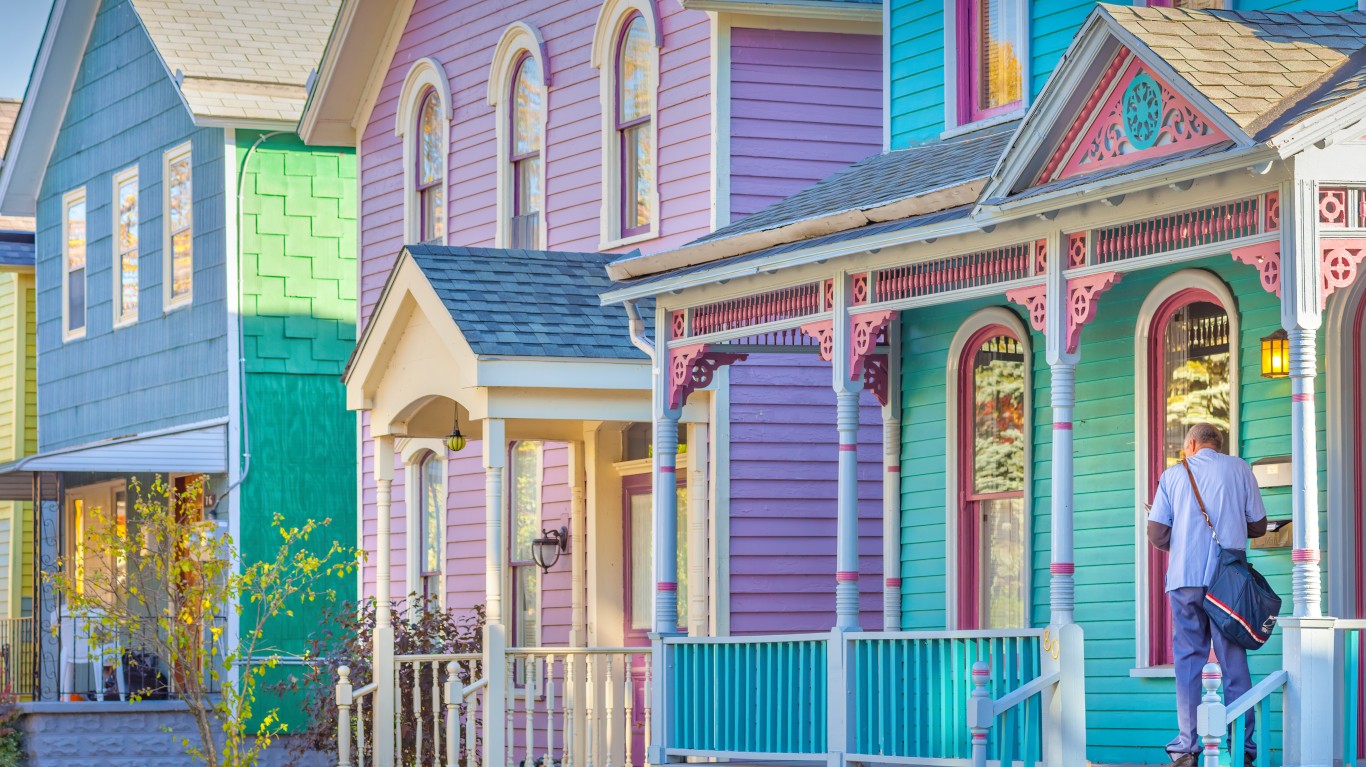
4. Buffalo, New York
> Housing units built before 1960: 82.0%
> Housing units built since 2000: 3.6%
> Median home value: $112,900
> Total population: 276,011
> First registered historic property or district: Delaware Avenue Historic District (registered 1974)
3. Berwyn, Illinois
> Housing units built before 1960: 82.9%
> Housing units built since 2000: 2.4%
> Median home value: $244,500
> Total population: 56,960
> First registered historic property or district: Central Berwyn Bungalow Historic District (registered 2015)
2. Cicero, Illinois
> Housing units built before 1960: 84.8%
> Housing units built since 2000: 0.7%
> Median home value: $190,500
> Total population: 84,905
> First registered historic property or district: Chodl Auditorium (registered 1983)
[in-text-ad-2]
1. Levittown, New York
> Housing units built before 1960: 89.5%
> Housing units built since 2000: 1.2%
> Median home value: $445,700
> Total population: 52,540
> First registered historic property or district: Jerusalem District No. 5 Schoolhouse (registered 1996)
Get Ready To Retire (Sponsored)
Start by taking a quick retirement quiz from SmartAsset that will match you with up to 3 financial advisors that serve your area and beyond in 5 minutes, or less.
Each advisor has been vetted by SmartAsset and is held to a fiduciary standard to act in your best interests.
Here’s how it works:
1. Answer SmartAsset advisor match quiz
2. Review your pre-screened matches at your leisure. Check out the advisors’ profiles.
3. Speak with advisors at no cost to you. Have an introductory call on the phone or introduction in person and choose whom to work with in the future
Thank you for reading! Have some feedback for us?
Contact the 24/7 Wall St. editorial team.
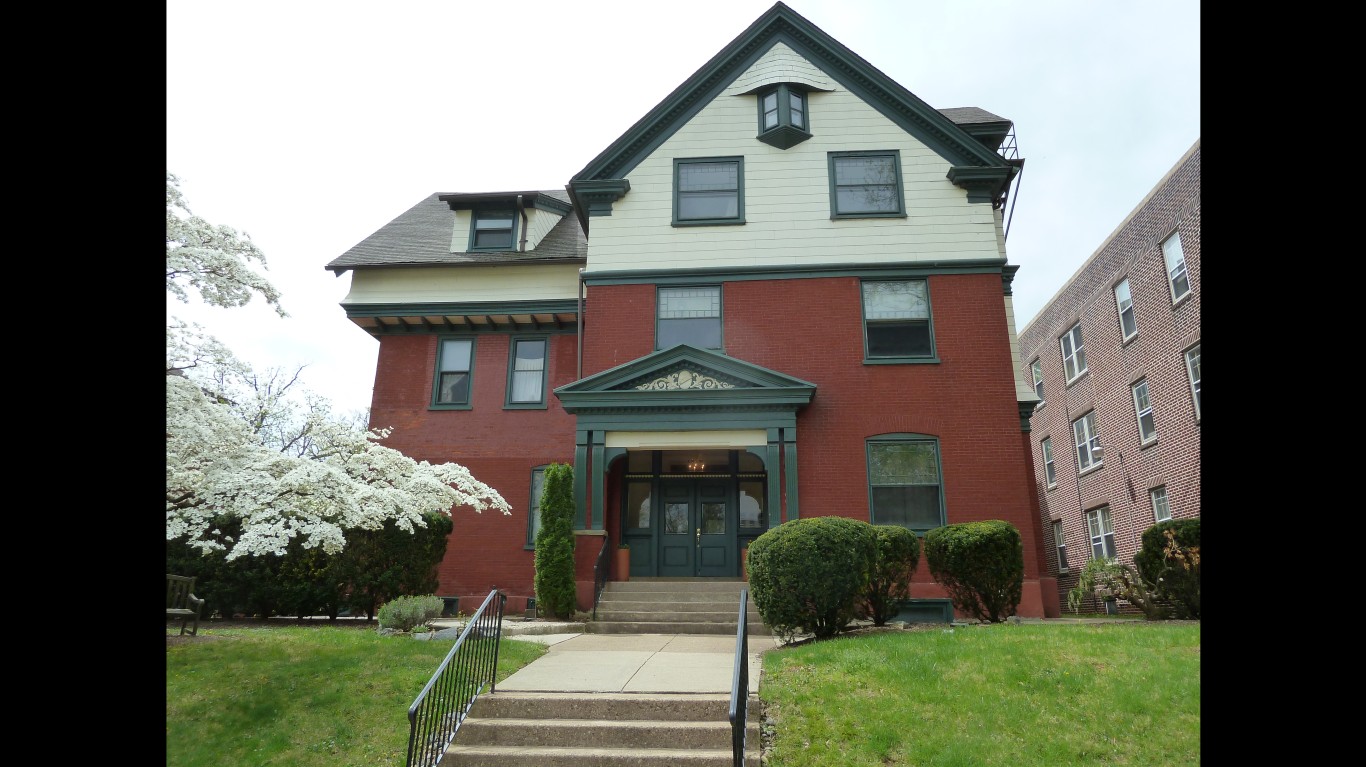
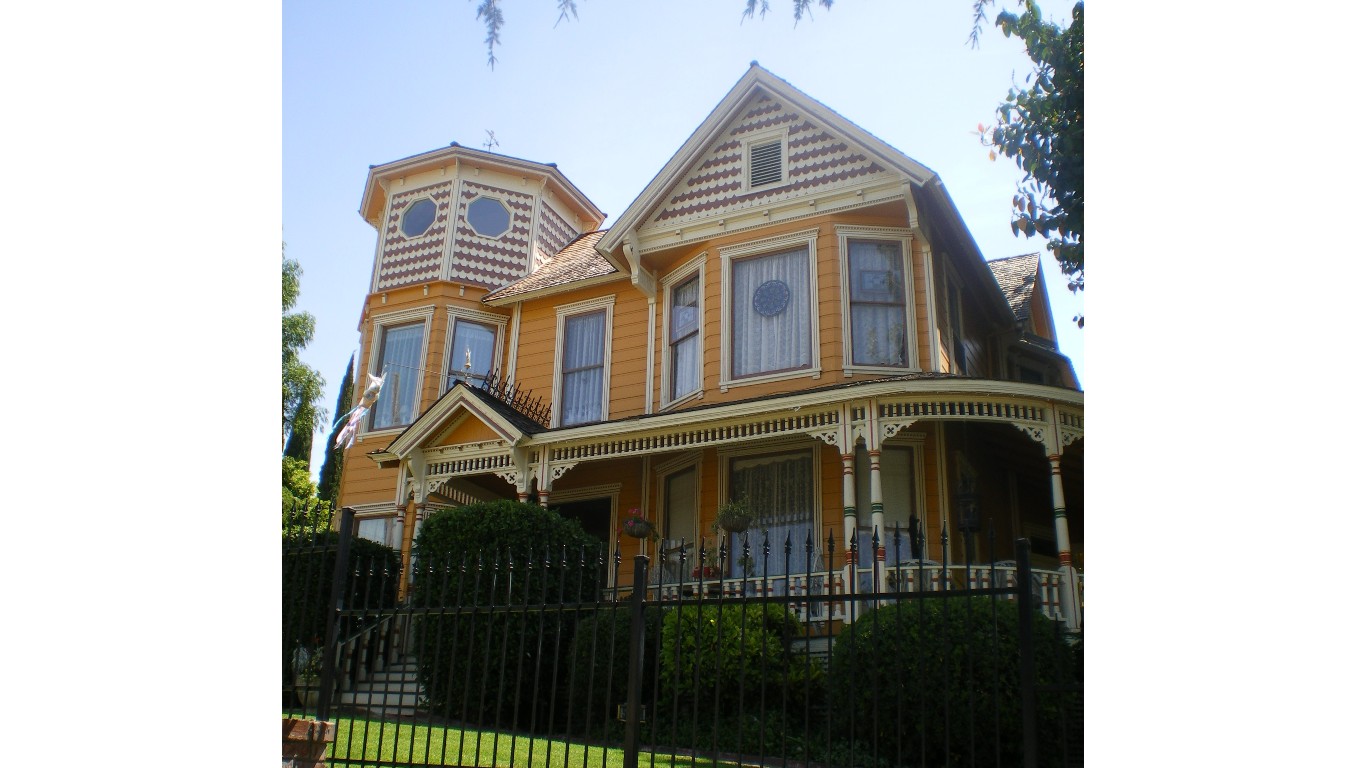
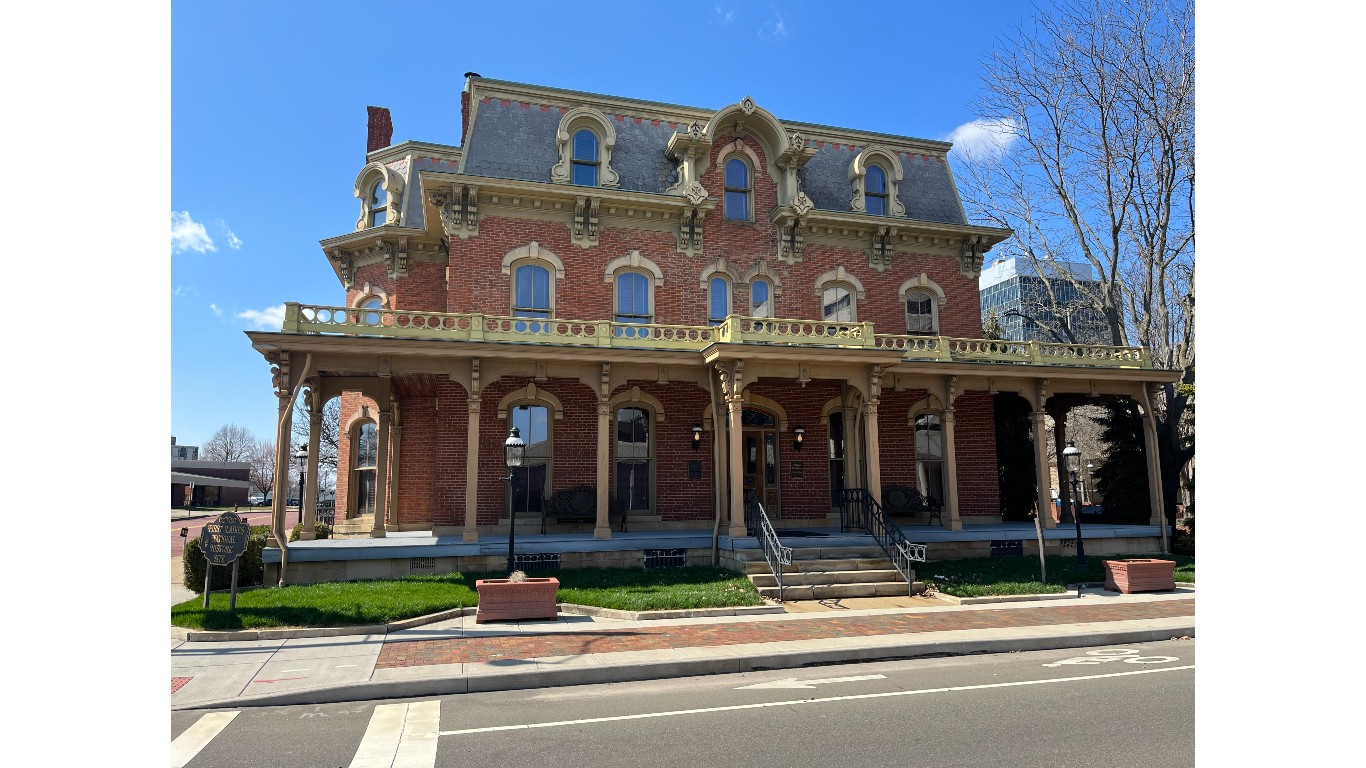
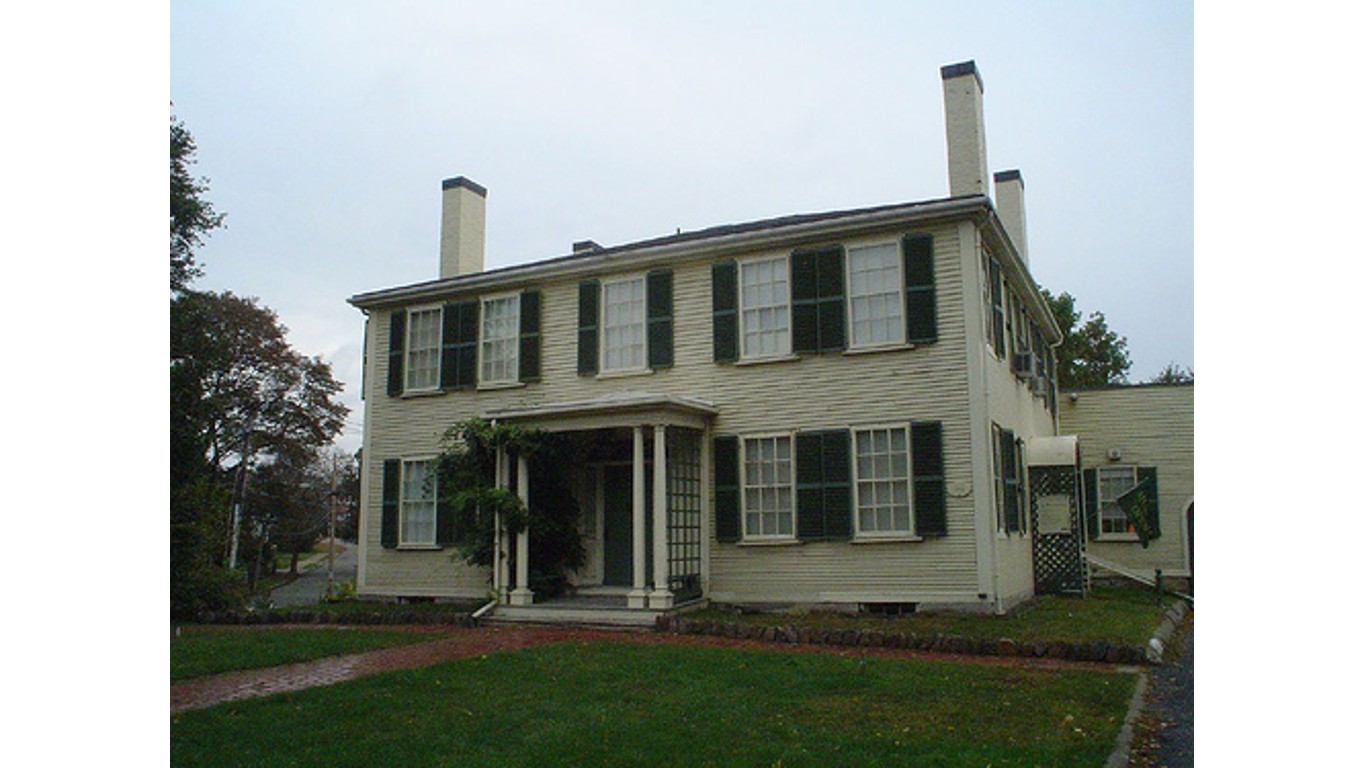
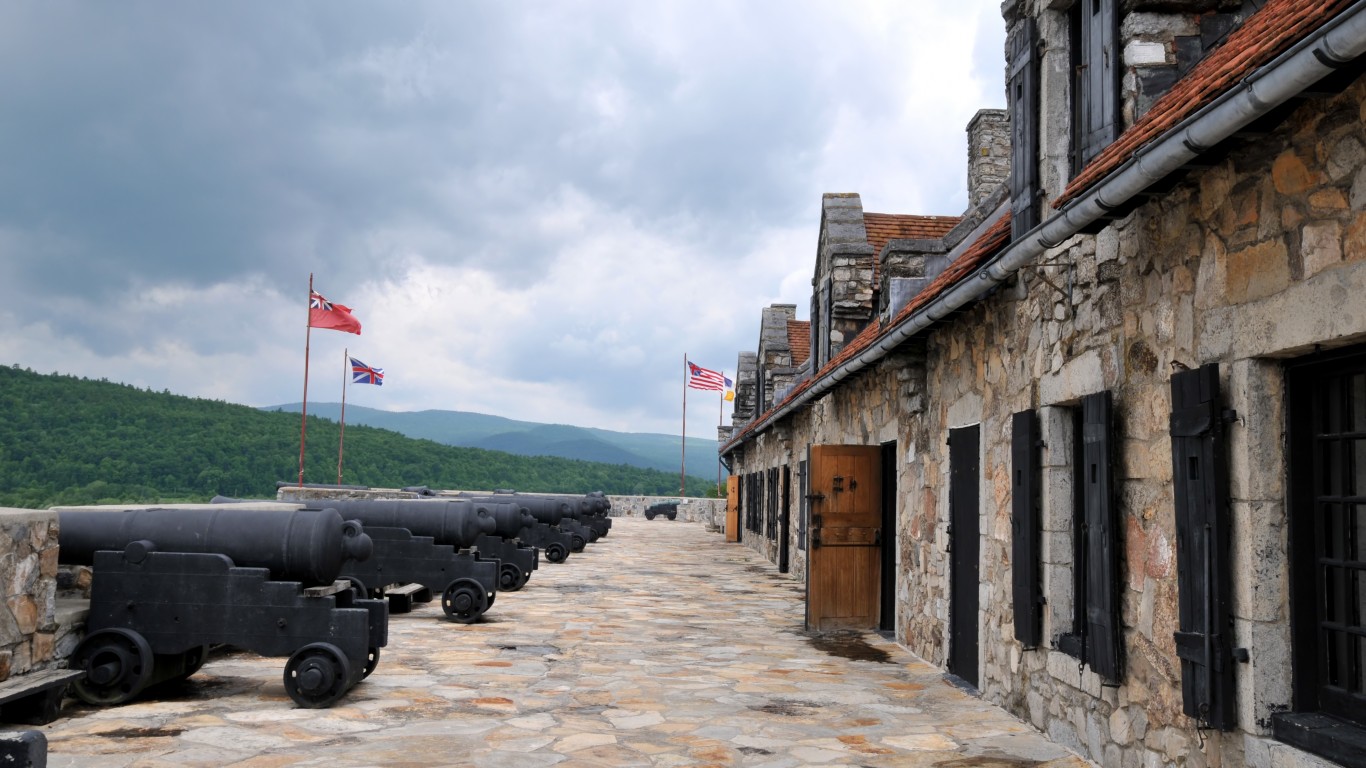 24/7 Wall St.
24/7 Wall St.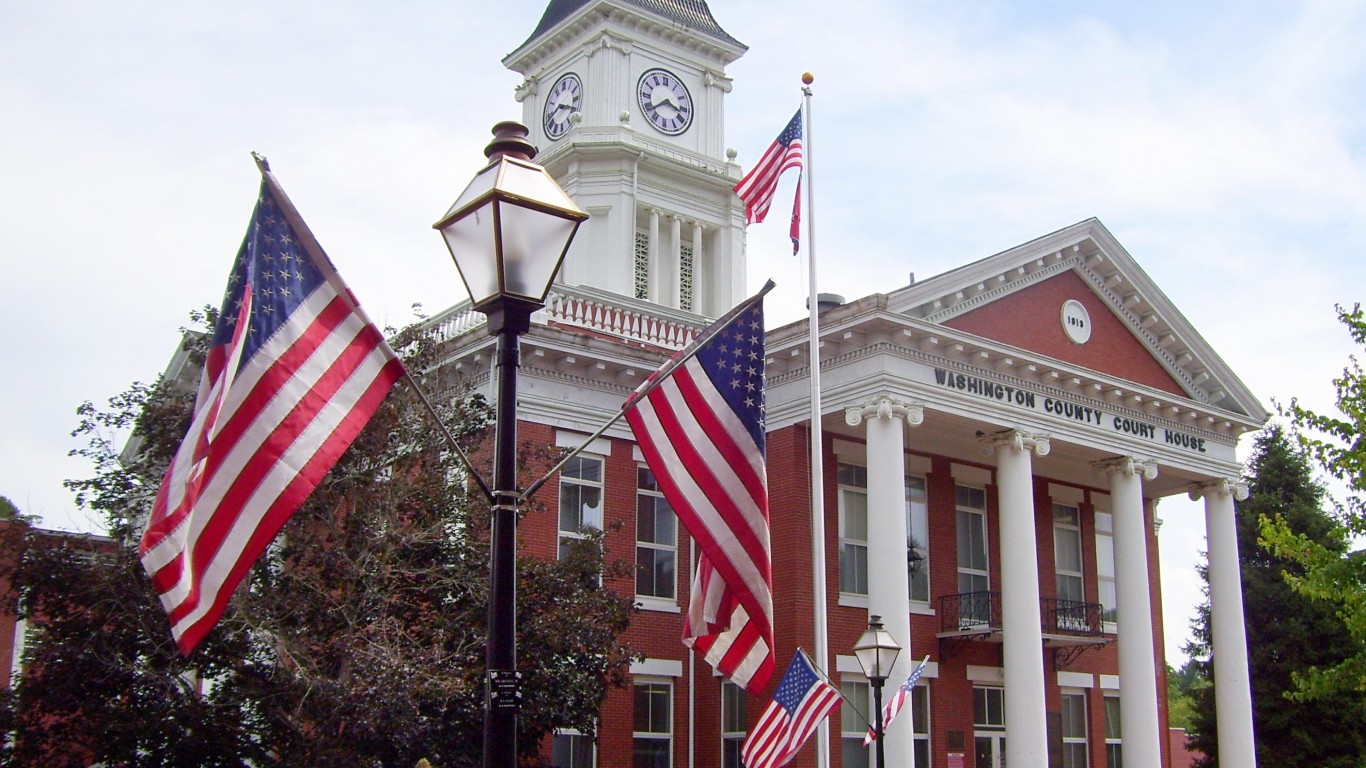 24/7 Wall St.
24/7 Wall St.